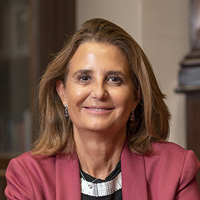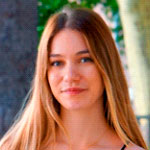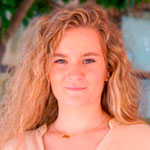Bachelor’s Degree in Tourism and Hospitality Management
Maribel Rodríguez, President of WLT and Senior VP of WTTC at the Conference on Women's Leadership in Tourism in Spain

Join the transformation of the tourism industry—an innovative, intelligent, and sustainable sector.
The primary objective of Nebrija University's new Bachelor's Degree in Tourism and Hospitality Management is to prepare future tourism directors and managers for both national and international roles. Our specialized program focuses on the tourism sector, covering the creation, management, and direction of tourism companies and destinations.
The updated curriculum has been meticulously designed to address industry needs. It includes subjects that equip our students with the skills required for high-demand profiles, such as Innovation, Technology, Experiences, Entrepreneurship, ESG (Environmental, Social, and Governance) and Sustainability, Digitalization, Tourism Intelligence, Transformation and Data, Soft Skills, and Languages, so that graduates will be well-prepared to make informed decisions and effectively manage tourism-related challenges.
Our university offers specialized training with a student-centered, participatory methodology that emphasizes practical learning. Our academic and professional instructors enhance classroom instruction through academic visits, simulators, case studies, and Lab Challenges—real-world scenarios that allow students to collaborate with sector companies.
Students enrolled in the program have the opportunity to undertake a portion of their studies at premier universities in the United States, Italy, Australia, Germany, and Mexico. This experience fosters the development of an international network of contacts that will serve them throughout their professional careers. Additionally, students have the option to reside in Palma de Mallorca at the Felipe Moreno Higher Education Center, an affiliate of Nebrija University.
Read +Nebrija University is deeply committed to enhancing the employability of its students. To this end, students supplement their academic learning with professional internships at some of the most competitive tourism companies both nationally and internationally. These include the Four Seasons Hotel, Hotel Riu, Meliá Hotels, NH Hotels, Viajes El Corte Inglés, Spain is Excellence, and the Instituto Tecnológico Hotelero.
Furthermore, students are encouraged to participate in national and international competitions such as the Talent Match, sponsored by the Hotusa Group, and the UNWTO Students' League, organized by UN Tourism.
The Tourism Department at Nebrija University has been a leader in tourism education and research since the institution's inception. In addition to offering a Bachelor's degree in Tourism and Hospitality Management, the department provides postgraduate training through programs such as the Master's in Strategic Management of Smart Tourism Destinations, and the Master's in Tourism Transformation and Applied Data, the Telefónica-Nebrija Chair and the Nebrija-SmarTTour-INN Research Group in Tourism Intelligence and the Interuniversity Doctorate in Tourism.
Read Less"The tourism industry is undergoing a significant transformation, necessitating professionals who are well-trained, critical, and dynamic thinkers. At Nebrija University, our Bachelor's Degree in Tourism and Hospitality Management is designed to offer high-quality education that prepares our students to assume roles of responsibility, spearhead changes, or even establish their own businesses. Our curriculum emphasizes key aspects that are vital to the current and future landscape of tourism, including digitalization, sustainability, experiential elements, innovation, and technology. Our approach to education is highly practical, ensuring that our students are in constant contact with companies, institutions, and professionals within the industry. Furthermore, we champion internationalization and foster an entrepreneurial spirit, both of which are indispensable in the field of tourism."
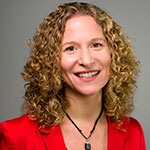
Daniela Thiel Ellul Director of the Bachelor’s Degree in Tourism and Hospitality Management
Embark on a distinctive program that equips university professionals with robust knowledge, adept skills, and comprehensive competences, enabling them to thrive in the ever-evolving and dynamic landscape of the tourism sector.
Affiliated member of UN Tourism
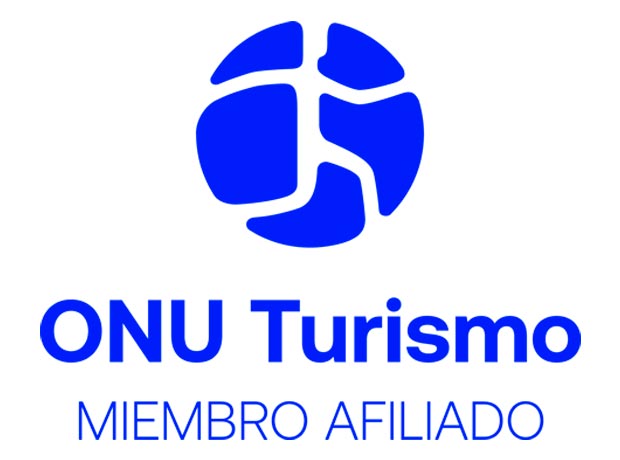
UN Tourism, previously referred to as the World Tourism Organization (UNWTO), is a specialized agency of the United Nations. Its mission is to advocate for responsible, sustainable, and universally accessible tourism.
Practical education in an international campus with over 70 nationalities
Curriculum
BOE No. 91, of April 14, 2009
All our degrees and curricula have been prepared in accordance with the new guidelines set by current legislation, having already been verified by the National Agency for Quality Assessment.
The student must take 240 credits
First year 60 ECTS
First Semester 30 ECTS- 6 ECTS | Tourist Ecosystem I
- 6 ECTS | Tourism and Territory
- 6 ECTS | Applied Economics in the Tourism Sector
- 6 ECTS | Fundamentals of Tourism Business
- 6 ECTS | Development of Professional Competences I
Second Semester 30 ECTS- 6 ECTS | Tourist Ecosystem II
- 6 ECTS | Tourism Markets and Consumer Behavior
- 6 ECTS | Tourism Heritage Management
- 6 ECTS | Financial Accounting
- 6 ECTS | Technology Applied to Tourism Companies
Second year 60 ECTS
First Semester 30 ECTS- 6 ECTS | Governance and Tourism Policy
- 6 ECTS | Tourism Marketing
- 6 ECTS | Statistics Applied to Tourism
- 6 ECTS | English Applied to Tourism
- 6 ECTS | Ecological and Digital Transition
Second Semester 30 ECTS- 6 ECTS | Tourism Market Research
- 6 ECTS | Planning and Management of Tourism Destinations
- 6 ECTS | Analytical and Management Accounting
- 6 ECTS | Second Language Applied to Tourism
- 6 ECTS | Development of Professional Competences II
Third year 60 ECTS
First Semester 30 ECTS- 6 ECTS | Tourism Intelligence and Data Analysis I
- 6 ECTS | ESG and Sustainability in Tourism
- 6 ECTS | Strategic Management in Tourism
- 6 ECTS | Management of People and Teams in Tourism
- 6 ECTS | Legal Framework of Tourism
Second Semester 30 ECTS- 6 ECTS | Entrepreneurship in Tourism
- 6 ECTS | Tourism Innovation
- 6 ECTS | Internationalization in the Tourism Sector
- 6 ECTS | Management Skills in Tourism
- 6 ECTS | Professional Academic Internship I
Fourth year 60 ECTS
First Semester 30 ECTS- 6 ECTS | New Technologies in the Tourism Field
- 6 ECTS | Financial Management in Tourism Companies
- 6 ECTS | Elective 1
- 6 ECTS | Design of Tourism Experiences
- 6 ECTS | Tourism Intelligence and Data Analysis II
- 6 ECTS | Hotel Management
- 6 ECTS | Business and Event Tourism
- 6 ECTS | Elective 2
- 6 ECTS | Service and Customer Experience Management
- 6 ECTS | Fundamentals of Data-Driven Tourism Organizations
- 6 ECTS | Protocol Applied to Events
- 6 ECTS | Professional Academic Internship II
Second Semester 30 ECTS- 6 ECTS | E-commerce in the Tourism Sector
- 6 ECTS | Elective 3
- 6 ECTS | Emerging Tourism Segments
- 6 ECTS | Management of Transformation Projects in Tourism Organizations
- 6 ECTS | Revenue Management
- 6 ECTS | Design and Organization of Events
- 6 ECTS | Elective 4
- 6 ECTS | Lab Challenge Tourism Experiences
- 6 ECTS | Lab Challenge Transformation of Organizations and Data
- 6 ECTS | Lab Challenge in Hotel Businesses
- 6 ECTS | Lab Challenge in Business and Event Tourism
- 6 ECTS | Development of Professional Competences III
- 6 ECTS | Final Research Project (TOURISM)
More information on these subjects
- 6 ECTS | Communication and Emotional Intelligence workshops
- 6 ECTS | Teamwork and Project Management workshops
- 6 ECTS | Leadership and Negotiation workshops
A program whose objective is to favor the practical training of the students, under the continuous supervision of the Department of Professional Careers of the University, the academic department corresponding to the degree and the company or collaborating institution where the internships are carried out. We provide advice on the choice of internships and follow-up and tutoring, always considering the professional orientation of each student.
More information on Internships on Companies List of companies and institutions where the students of the Bachelor's Degree have done internships under educational cooperation agreementsThis project involves the development of research tasks regarding different subjects by the student under the advice of one or several professors of the Department and, occasionally, professionals from the business world. For this, the student has the possibility to choose a project from among those offered.
Through the transversal subjects you will be able to complement your education and complete your CV in a practical, collaborative and fun way.
It is a voluntary program with no added cost. Upon completion, you will be provided with a diploma.
Access all the informationNebrija University, which is committed to languages and quality, provides the student with added value with the Diploma in English Professional Communication, which will allow him/her to achieve with confidence the competence demanded to successfully join the labor market.
It corresponds to level C1.
More information herePrevious curriculum (to extinguish)
First year 60 ECTS
Primer Semestre 30 ECTS
First Semester 30 ECTS- 6 ECTS | Economy applied to the tourism sector

- 6 ECTS | The Company and its Environment

- 6 ECTS | Tourism resources

- 6 ECTS | Modern Languages I: German I or French I
- 6 ECTS | Structure of the tourism offer

Second Semester 30 ECTS- 6 ECTS | Technology applied to the company

- 6 ECTS | Modern Languages II: German II or French II
- 6 ECTS | Trends in tourism demand

- 6 ECTS | Financial Accounting
- 6 ECTS | Development of Professional Competences I

Second year 60 ECTS
First Semester 30 ECTS- 6 ECTS | Applied Statistics

- 6 ECTS | Cultural heritage I

- 6 ECTS | Planning of tourist destinations

- 6 ECTS | Modern Languages III: German III or French III
- 6 ECTS | Modern Languages IV: French I or Chinese I
Second Semester 30 ECTS- 6 ECTS | Cultural Heritage II

- 6 ECTS | Market research in tourism

- 6 ECTS | Modern languages V: Advanced English

- 6 ECTS | Modern Languages VI: French II or Chinese II
- 6 ECTS | Development of Professional Competences II

Third year 60 ECTS
First Semester 30 ECTS- 6 ECTS | Modern languages VII: French III or Chinese III
- 6 ECTS | Evaluation of tourism impacts

- 6 ECTS | Management of people and equipment in tourism

- 6 ECTS | Analytical and Management Accounting
- 6 ECTS | Strategic Management

Second Semester 30 ECTS- 6 ECTS | Tourism marketing

- 6 ECTS | Innovation in tourism products

- 6 ECTS | Internationalization in the tourism sector

- 6 ECTS | Entrepreneurship in tourism

- 6 ECTS | Eval. of the Development of Skills in the Company
Fourth year 60 ECTS
First Semester 36 ECTS- 6 ECTS | | Legal environment in tourism

- 6 ECTS | New Technologies in the Tourism Field

- 6 ECTS | E-commerce in the tourism sector

- 6 ECTS | Elective 1
- 6 ECTS | Operations and Processes in the Hotel Sector

- 6 ECTS | Distribution in the Tourism Sector
- 6 ECTS | Management of tourist destinations
- 6 ECTS | Business and event tourism

- 6 ECTS | Operations and Processes in the Hotel Sector
- 6 ECTS | Elective 2
- 6 ECTS | Business and event tourism

- 6 ECTS | Operations and processes in tourist distribution
- 6 ECTS | Tourism policy
- 6 ECTS | Protocol applied to events

- 6 ECTS | Business and event tourism
- 6 ECTS |
Development of Professional Competencies III

Second Semester 24 ECTS- 6 ECTS | Financial management in tourism companies
- 6 ECTS | Elective 3
- 6 ECTS | Hotel Management

- 6 ECTS | Management of travel agencies
- 6 ECTS | Tourism development models
- 6 ECTS | Event design and organization

- 6 ECTS | Hotel Management
- 6 ECTS | Elective 4
- 6 ECTS | Creation and management of hotel projects

- 6 ECTS | Creation and management of travel agency projects
- 6 ECTS | Destination marketing
- 6 ECTS | Marketing and communication of events

- 6 ECTS | Creation and management of hotel projects
- 6 ECTS | Final Research Project
Professors
| Profesores Professors | Porcentaje de Doctores Percentage of PhD holders |
| 44 | 61% |
 Daniela Thiel Ellul
Directora del grado en turismo
Daniela Thiel Ellul
Directora del grado en turismo Profesora de Investigación de mercados en turismo ‐ Evaluación de impactos turísticos ‐ Marketing de destinos ‐ Trabajo Fin de Grado Director of Bachelor's Degree in Tourism
Professor of Market Research in Tourism - Evaluation of Tourism Impacts - Destination Marketing - Final Research Project Doctora en el Programa Oficial de Posgrado en Turismo y Máster en Dirección y Planificación del Turismo (Universidad de Málaga). Licenciada en Administración y Gestión Empresarial (Universidad Nacional de San Martín -UNSAM, Argentina). Acreditada como Contratado Doctor por ANECA. Ha trabajado como Coordinadora e Investigadora del Centro de Investigación y Desarrollo del Turismo de la UNSAM desde el año 2005, siendo profesora en el grado y posgrado de turismo. Tiene antecedentes como directora e integrante de diversos proyectos de investigación financiados en Argentina y España. Cuenta con publicaciones y ponencias presentadas en congresos, seminarios y jornadas sobre turismo, en Argentina, España, Chile, Brasil, Colombia, México, Uruguay y Costa Rica. En la actualidad desempeña las funciones de Coordinadora Académica del Grado en Turismo de la Universidad Antonio de Nebrija impartiendo docencia en programas de grado y posgrado en el área de Turismo e integra el Grupo de Investigación en Inteligencia Turística e Innovación (Smarttour-INN). Sus líneas prioritarias se centran en el análisis de la sostenibilidad de los destinos, los impactos del turismo y la planificación; los destinos turísticos inteligentes; y en estudios sobre el seguimiento y desarrollo de la actividad turística.
 Nadia Ahmadouche
Profesora de Contabilidad Analítica y de Gestión
Professor of Analytical and Management Accounting
Nadia Ahmadouche
Profesora de Contabilidad Analítica y de Gestión
Professor of Analytical and Management Accounting
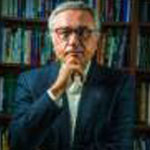 Leopoldo Alandete Medrano
Profesor de Dirección Estratégica
Professor of Strategic Management
Executive MBA en HEC París. Cuenta con un Programa para Empresarios de Harvard Business School y un Programa de Desarrollo Directivo del IESE. Es Licenciado en Derecho, Ciencias Económicas y Empresariales, ICADE E-3. Es experto en dirección estratégica, creación de empresas, comercial y marketing, customer experience, habilidades directivas e innovación.
Cuenta con 35 años de experiencia. Ceo de Good Results y Results Focus. Empresa de consultoría de management en España y Chile. Ha brindado asesoramiento a empresas en construcción, servicios, sanidad, educación, telecomunicaciones, banca y seguros entre otras. Profesor en 14 Business Schools y universidades en España, Latam y Asia. Autor en la revista Harvard Deusto Marketing Ventas, Harvard Deusto Ventas, Enfoques para la Dirección y Manager Focus, entre otras.
Leopoldo Alandete Medrano
Profesor de Dirección Estratégica
Professor of Strategic Management
Executive MBA en HEC París. Cuenta con un Programa para Empresarios de Harvard Business School y un Programa de Desarrollo Directivo del IESE. Es Licenciado en Derecho, Ciencias Económicas y Empresariales, ICADE E-3. Es experto en dirección estratégica, creación de empresas, comercial y marketing, customer experience, habilidades directivas e innovación.
Cuenta con 35 años de experiencia. Ceo de Good Results y Results Focus. Empresa de consultoría de management en España y Chile. Ha brindado asesoramiento a empresas en construcción, servicios, sanidad, educación, telecomunicaciones, banca y seguros entre otras. Profesor en 14 Business Schools y universidades en España, Latam y Asia. Autor en la revista Harvard Deusto Marketing Ventas, Harvard Deusto Ventas, Enfoques para la Dirección y Manager Focus, entre otras.
 Antonio Alcocer Fernández‐Pinilla
Profesor de Gestión financiera en empresas turísticas
Professor of Financial Management in tourism companies
Profesor Ingeniero Superior Industrial, por la Universidad Pontifica de Comillas, ICAI. MSc. in Management, por la Universidad de Birmingham. Master Executive en Finanzas por el ICADE, European Financial Advisor (EFA), Sony Six Sigma Green Belt Certificate, Project Management Professional (PMP) certificado. Doctor en Economía y Finanzas por la UE. Profesional con más de trece años de experiencia profesional internacional a nivel de dirección, en las áreas de consultoría, estrategia, desarrollo de negocio, marketing, finanzas y operaciones en entornos multinacionales (Unión Europea, Grupo Laureate International, Sony, PSA Citroën Peugeot, Agrolimen y MLP Private Finance). Actualmente, es socio consultor de negocio en Alcocer&Co. Profesor universitario en varias universidades, en los programas de máster y grado, en el área de Economía de la Empresa y Finanzas. Y Presidente de la asociación sin ánimo de lucro Minds4Change, focalizada en educación y emprendimiento.
Antonio Alcocer Fernández‐Pinilla
Profesor de Gestión financiera en empresas turísticas
Professor of Financial Management in tourism companies
Profesor Ingeniero Superior Industrial, por la Universidad Pontifica de Comillas, ICAI. MSc. in Management, por la Universidad de Birmingham. Master Executive en Finanzas por el ICADE, European Financial Advisor (EFA), Sony Six Sigma Green Belt Certificate, Project Management Professional (PMP) certificado. Doctor en Economía y Finanzas por la UE. Profesional con más de trece años de experiencia profesional internacional a nivel de dirección, en las áreas de consultoría, estrategia, desarrollo de negocio, marketing, finanzas y operaciones en entornos multinacionales (Unión Europea, Grupo Laureate International, Sony, PSA Citroën Peugeot, Agrolimen y MLP Private Finance). Actualmente, es socio consultor de negocio en Alcocer&Co. Profesor universitario en varias universidades, en los programas de máster y grado, en el área de Economía de la Empresa y Finanzas. Y Presidente de la asociación sin ánimo de lucro Minds4Change, focalizada en educación y emprendimiento.
 Javier Alcover
Profesor de Lenguas Modernas V: Advanced English
Professor of Modern Languages V: Advanced English
Licenciado en Periodismo y Estudios Mediáticos en la Universidad de Stirling en Escocia y Máster en Estudios de Cine en la Universidad de Edimburgo. Tras acabar sus estudios universitarios ha enfocado su carrera hacia la enseñanza de inglés, tanto a niños como a adultos, en academias y en la universidad. Ha completado el curso de formación para profesores de idiomas de Cambridge CELTA y actualmente está cursando el 2º Módulo del curso Delta, también de Cambridge. Ha vivido en Nigeria, Holanda, el Sultanato de Omán, Malasia y el Reino Unido.
Javier Alcover
Profesor de Lenguas Modernas V: Advanced English
Professor of Modern Languages V: Advanced English
Licenciado en Periodismo y Estudios Mediáticos en la Universidad de Stirling en Escocia y Máster en Estudios de Cine en la Universidad de Edimburgo. Tras acabar sus estudios universitarios ha enfocado su carrera hacia la enseñanza de inglés, tanto a niños como a adultos, en academias y en la universidad. Ha completado el curso de formación para profesores de idiomas de Cambridge CELTA y actualmente está cursando el 2º Módulo del curso Delta, también de Cambridge. Ha vivido en Nigeria, Holanda, el Sultanato de Omán, Malasia y el Reino Unido.
 Miren Aurkene Alzua Sorzabal
Profesora de Política turística ‐ La distribución en el sector turístico ‐ Nuevas tecnologíasen el ámbito turistico
Professor of Tourism Policy - Distribution in the Tourism Sector - New Technologies in the Tourism Field
Doctora en Turismo Internacional en la Universidad de Purdue, Estados Unidos (1999). Acreditada. Actualmente posee una doble afiliación a la Universidad de Nebrija y Universidad de Deusto. Lidera el Grupo de Investigación en Investigación e Innovación en Turismo Inteligente de la Universidad Nebrija. Es co-fundadora de la empresa Lurmetrika Labs dedicada a la inteligencia turística y analítica avanzada en turismo. Ha sido Directora Ejecutiva del Centro de Investigación de Competencias de Investigación en Turismo, CICtourGUNE. Ha estado a cargo de cursos y seminarios en la Universidad Purdue, en la Universidad Rovira I Virgilli y en la Universidad Deusto. Ha coordinado varios programas académicos como el "Master of Arts in Euroculture" (Erasmus Mundus) y ha participado en varias redes europeas de excelencia. Ha dirigido importantes proyectos de investigación competitivos y ha colaborado con las administraciones públicas vasca, española e internacional. El alcance de su investigación se centra en Turismo, Destinos Turísticos Inteligentes, Sistemas Avanzados de Medición y Análisis (Bid Data), e innovación. Sus últimos trabajos se centran en estrategias competitivas para destinos turísticos inteligentes e identificación de nuevas métricas paramodelar y poner en acción la inteligencia en el sector. Es miembro del consejo editorial de Information Technology & Tourism. Sus trabajos están publicados en diversas revistas de impacto.
Miren Aurkene Alzua Sorzabal
Profesora de Política turística ‐ La distribución en el sector turístico ‐ Nuevas tecnologíasen el ámbito turistico
Professor of Tourism Policy - Distribution in the Tourism Sector - New Technologies in the Tourism Field
Doctora en Turismo Internacional en la Universidad de Purdue, Estados Unidos (1999). Acreditada. Actualmente posee una doble afiliación a la Universidad de Nebrija y Universidad de Deusto. Lidera el Grupo de Investigación en Investigación e Innovación en Turismo Inteligente de la Universidad Nebrija. Es co-fundadora de la empresa Lurmetrika Labs dedicada a la inteligencia turística y analítica avanzada en turismo. Ha sido Directora Ejecutiva del Centro de Investigación de Competencias de Investigación en Turismo, CICtourGUNE. Ha estado a cargo de cursos y seminarios en la Universidad Purdue, en la Universidad Rovira I Virgilli y en la Universidad Deusto. Ha coordinado varios programas académicos como el "Master of Arts in Euroculture" (Erasmus Mundus) y ha participado en varias redes europeas de excelencia. Ha dirigido importantes proyectos de investigación competitivos y ha colaborado con las administraciones públicas vasca, española e internacional. El alcance de su investigación se centra en Turismo, Destinos Turísticos Inteligentes, Sistemas Avanzados de Medición y Análisis (Bid Data), e innovación. Sus últimos trabajos se centran en estrategias competitivas para destinos turísticos inteligentes e identificación de nuevas métricas paramodelar y poner en acción la inteligencia en el sector. Es miembro del consejo editorial de Information Technology & Tourism. Sus trabajos están publicados en diversas revistas de impacto.
 Andrés Jerónimo Arenas Falótico
Profesor de Dirección estratégica
Professor of Strategic Management
Abogado, Periodista, Máster en Administración de Empresas, Máster en Educación y Doctor en Management en los Estados Unidos. Ha sido premiado por su desempeño profesional y académico tanto nacional como internacionalmente, resalta “El Día de Andrés Arenas” que le otorgó la Alcaldía de Miami en Florida. Tiene más de 13 años en múltiples cargos académicos en universidades dentro y fuera de España. Cuenta con amplia experiencia gerencial de alto nivel en empresas multinacionales cómo CEMEX, BellSouth, Mack Trucks, entre otras. Sus líneas de investigación son relacionadas con el área de negocios internacionales y el área de emprendimiento empresarial satelital pues forma parte de un panel de expertos de Universidad de Tokio en Japón llamado “Mission Idea Contest”.
Andrés Jerónimo Arenas Falótico
Profesor de Dirección estratégica
Professor of Strategic Management
Abogado, Periodista, Máster en Administración de Empresas, Máster en Educación y Doctor en Management en los Estados Unidos. Ha sido premiado por su desempeño profesional y académico tanto nacional como internacionalmente, resalta “El Día de Andrés Arenas” que le otorgó la Alcaldía de Miami en Florida. Tiene más de 13 años en múltiples cargos académicos en universidades dentro y fuera de España. Cuenta con amplia experiencia gerencial de alto nivel en empresas multinacionales cómo CEMEX, BellSouth, Mack Trucks, entre otras. Sus líneas de investigación son relacionadas con el área de negocios internacionales y el área de emprendimiento empresarial satelital pues forma parte de un panel de expertos de Universidad de Tokio en Japón llamado “Mission Idea Contest”.
 Christian Bailac Jobst
Profesor de E‐commerce en el sector turístico
Professor of E-commerce in the Tourism Sector
Profesor. Máster en MBA (Escuela Europa de Negocios) y Diplomado en Turismo (Universidad de Barcelona). Comenzó su carrera en varios puestos de recepción en diferentes hoteles de Barcelona y Alemania. Su trayectoria profesional se ha desarrollado primero en la recepción y luego fue creciendo como Ejecutivo de Ventas Nacional y más tarde Jefe de Ventas Internacional. De ahí saltó a la Dirección de hoteles, llevando la apertura y dirección de dos hoteles en Madrid y Barcelona. Tras más de 6 años como Director Regional de Ventas para Europa & UK de la cadena de hoteles de lujo L.E Hotels se incorporó como Director de ventas & Marketing del emblemático Hotel Miguel Angel de 5* en Madrid. En la actualidad está trabajando como Director de Estrategia Comercial en el Hotel Puerta América 5* de Madrid.
Christian Bailac Jobst
Profesor de E‐commerce en el sector turístico
Professor of E-commerce in the Tourism Sector
Profesor. Máster en MBA (Escuela Europa de Negocios) y Diplomado en Turismo (Universidad de Barcelona). Comenzó su carrera en varios puestos de recepción en diferentes hoteles de Barcelona y Alemania. Su trayectoria profesional se ha desarrollado primero en la recepción y luego fue creciendo como Ejecutivo de Ventas Nacional y más tarde Jefe de Ventas Internacional. De ahí saltó a la Dirección de hoteles, llevando la apertura y dirección de dos hoteles en Madrid y Barcelona. Tras más de 6 años como Director Regional de Ventas para Europa & UK de la cadena de hoteles de lujo L.E Hotels se incorporó como Director de ventas & Marketing del emblemático Hotel Miguel Angel de 5* en Madrid. En la actualidad está trabajando como Director de Estrategia Comercial en el Hotel Puerta América 5* de Madrid.
 Alejandro Beltrán Ortega
Profesor de Patrimonio Cultural I ‐ Patrimonio Cultural II
Professor of Cultural Heritage I - Cultural Heritage II
Profesor. Doctor en Historia por la Universidad Complutense, cuenta con varios años de experiencia docente en educación universitaria (Universidad Carlos III de Madrid, UNED, Universidad de Burgos, Universidad Alfonso X el Sabio). Posee las acreditaciones de ANECA en las figuras de Ayudante Doctor y Contratado Doctor/Titular de Universidad Privada. Su trayectoria científica se plasma en más de 40 publicaciones de diversas revistas de impacto y editoriales de prestigio, así como más de una veintena de ponencias en congresos y más de una treintena de participaciones directas en proyectos de investigación. Fuera del ámbito universitario ha trabajado durante más de cinco años como investigador en el CSIC, así como Arqueólogo Profesional. Su línea de investigación aborda las cuestiones relacionadas con el Patrimonio Cultural y Arqueológico, la puesta en valor de los bienes culturales y el turismo patrimonial.
Alejandro Beltrán Ortega
Profesor de Patrimonio Cultural I ‐ Patrimonio Cultural II
Professor of Cultural Heritage I - Cultural Heritage II
Profesor. Doctor en Historia por la Universidad Complutense, cuenta con varios años de experiencia docente en educación universitaria (Universidad Carlos III de Madrid, UNED, Universidad de Burgos, Universidad Alfonso X el Sabio). Posee las acreditaciones de ANECA en las figuras de Ayudante Doctor y Contratado Doctor/Titular de Universidad Privada. Su trayectoria científica se plasma en más de 40 publicaciones de diversas revistas de impacto y editoriales de prestigio, así como más de una veintena de ponencias en congresos y más de una treintena de participaciones directas en proyectos de investigación. Fuera del ámbito universitario ha trabajado durante más de cinco años como investigador en el CSIC, así como Arqueólogo Profesional. Su línea de investigación aborda las cuestiones relacionadas con el Patrimonio Cultural y Arqueológico, la puesta en valor de los bienes culturales y el turismo patrimonial.
 Jesús Briones Delgado
Profesor de Dirección de personas y equipos en turismo
Professor of People and Team Management in Tourism
Ha desarrollado su carrera profesional en el Grupo CEPSA. Comenzó su trayectoria como técnico comercial en la unidad de ventas directas de combustibles y carburantes de donde fue pasando a otras áreas comerciales de la Compañía. En el año 2001 se integró en la Dirección de Recursos Humanos, en el área de Formación y Desarrollo de la que fue responsable. Actualmente, es Human Resources Business Partner de las unidades corporativas funcionales, así como de Trading y Búnker.
Es ponente habitual en temas relacionados con el liderazgo, el desarrollo de personas, la formación y la aplicación de las competencias digitales derivadas de la nueva economía en los ámbitos empre¬sariales. Es también profesor y colaborador de desarrollo directivo y liderazgo en diversos máste¬res y universidades. Miembro del claustro del Senior Managment Program in Digital Talent del ICEDM – ESIC.
Doctor en problemas contemporáneos de la sociedad de la información por la UCM, licenciado en Filosofía y en Ciencias del Trabajo y Graduado Social Diplomado. Jesús es además, MBA en Comercio Electrónico por la EOI. Autor del libro Promesas y realidades de la “revolución tecnológica” editorial Catarata 2016 y de otras publicaciones.
Jesús Briones Delgado
Profesor de Dirección de personas y equipos en turismo
Professor of People and Team Management in Tourism
Ha desarrollado su carrera profesional en el Grupo CEPSA. Comenzó su trayectoria como técnico comercial en la unidad de ventas directas de combustibles y carburantes de donde fue pasando a otras áreas comerciales de la Compañía. En el año 2001 se integró en la Dirección de Recursos Humanos, en el área de Formación y Desarrollo de la que fue responsable. Actualmente, es Human Resources Business Partner de las unidades corporativas funcionales, así como de Trading y Búnker.
Es ponente habitual en temas relacionados con el liderazgo, el desarrollo de personas, la formación y la aplicación de las competencias digitales derivadas de la nueva economía en los ámbitos empre¬sariales. Es también profesor y colaborador de desarrollo directivo y liderazgo en diversos máste¬res y universidades. Miembro del claustro del Senior Managment Program in Digital Talent del ICEDM – ESIC.
Doctor en problemas contemporáneos de la sociedad de la información por la UCM, licenciado en Filosofía y en Ciencias del Trabajo y Graduado Social Diplomado. Jesús es además, MBA en Comercio Electrónico por la EOI. Autor del libro Promesas y realidades de la “revolución tecnológica” editorial Catarata 2016 y de otras publicaciones.
 Santiago Budria Rodriguez
Profesor de Estadística aplicada
Professor of Applied Statistics
Profesor. Doctor en Economía por la Universidad de Alicante. Licenciado en economía por la Universidad Pompeu Fabra. Acreditado por ANECA. Con más de 1000 citaciones en Google Scholar y más de 20 artículos en revistas JCR, ha colaborado en una docena de proyectos de investigación competitivos y consultoría. Sus áreas de interés son la microeconometría, el mercado de trabajo, la economía de la educación, la desigualdad y el bienestar.
Santiago Budria Rodriguez
Profesor de Estadística aplicada
Professor of Applied Statistics
Profesor. Doctor en Economía por la Universidad de Alicante. Licenciado en economía por la Universidad Pompeu Fabra. Acreditado por ANECA. Con más de 1000 citaciones en Google Scholar y más de 20 artículos en revistas JCR, ha colaborado en una docena de proyectos de investigación competitivos y consultoría. Sus áreas de interés son la microeconometría, el mercado de trabajo, la economía de la educación, la desigualdad y el bienestar.
 María Isabel Casares García
Profesora de Desarrollo de Competencias profesionales I
Professor of Professional Competence Development I
Profesora de Desarrollo de Competencias Profesionales. Graduada en Psicología por la UNED, licenciada en Filología por la UCM e ingeniera en Aeronáutica por la UPM. Adicta al aprendizaje y especialista en compartirlo.
María Isabel Casares García
Profesora de Desarrollo de Competencias profesionales I
Professor of Professional Competence Development I
Profesora de Desarrollo de Competencias Profesionales. Graduada en Psicología por la UNED, licenciada en Filología por la UCM e ingeniera en Aeronáutica por la UPM. Adicta al aprendizaje y especialista en compartirlo.Cuenta con más de 10 años de experiencia profesional trabajando en español, inglés y francés.
Sus inicios profesionales fueron en el campo de la consultoría aeronáutica donde trabajó, principalmente, en proyectos internacionales como Marruecos, Argelia y Ecuador.
Posteriormente, realizó un cambio en su carrera profesional al campo actual, donde acumula 7 años de experiencia profesional como coach y formadora para empresas, escuelas de negocios y organizaciones.
Desde entonces, es profesora en la Escuela de Organización Industrial y en la Universidad Nebrija. Imparte talleres en habilidades como liderazgo, productividad y habilidades comunicativas.
 Oscar Crespo Arconada
Profesor de Desarrollo de Competencias profesionales II
Professor of Professional Competence Development II
Es licenciado en Periodismo por la Universidad Complutense de Madrid donde también obtuvo el Diploma de Estudios Avanzados en Tecnologías, Estructuras y Tratamientos de la Información en el año 2010 investigando las oportunidades del análisis masivo de datos y el procesamiento de lenguajes naturales. Su formación académica incluye un Master en Diseño e Infografía cursado en el Newcastle College de Gran Bretaña. Se dedica profesionalmente desde hace más de 20 años al ámbito de la comunicación, a la práctica con herramientas y lenguajes empleados para potenciar la imagen pública de entidades e individuos. Acumula una amplia experiencia en el mundo editorial como redactor y creador de contenidos multimedia para medios de comunicación on y offline. Ha tenido diferentes responsabilidades en el área de la comunicación corporativa, la comunicación interna y el marketing, desarrollando identidades de marca, campañas de productos y planes de incentivos que incluyen proyectos para Foxfilms, Fnac y Mercedes Benz. Además cuenta con un historial en el que figuran trabajos de consultoría para televisión y medios digitales y más de 10 años de experiencia docente en instituciones educativas como el Instituto de Empresa, la Universidad Nacional de Educación a Distancia o el Istituto Europeo di Design.
Oscar Crespo Arconada
Profesor de Desarrollo de Competencias profesionales II
Professor of Professional Competence Development II
Es licenciado en Periodismo por la Universidad Complutense de Madrid donde también obtuvo el Diploma de Estudios Avanzados en Tecnologías, Estructuras y Tratamientos de la Información en el año 2010 investigando las oportunidades del análisis masivo de datos y el procesamiento de lenguajes naturales. Su formación académica incluye un Master en Diseño e Infografía cursado en el Newcastle College de Gran Bretaña. Se dedica profesionalmente desde hace más de 20 años al ámbito de la comunicación, a la práctica con herramientas y lenguajes empleados para potenciar la imagen pública de entidades e individuos. Acumula una amplia experiencia en el mundo editorial como redactor y creador de contenidos multimedia para medios de comunicación on y offline. Ha tenido diferentes responsabilidades en el área de la comunicación corporativa, la comunicación interna y el marketing, desarrollando identidades de marca, campañas de productos y planes de incentivos que incluyen proyectos para Foxfilms, Fnac y Mercedes Benz. Además cuenta con un historial en el que figuran trabajos de consultoría para televisión y medios digitales y más de 10 años de experiencia docente en instituciones educativas como el Instituto de Empresa, la Universidad Nacional de Educación a Distancia o el Istituto Europeo di Design.
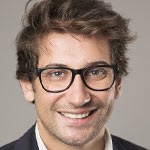 Geoffrey Ditta
Profesor de Internacionalización en el sector turístico
Professor of Internationalization in the Tourism Sector
Doctor en Ciencias Sociales, escuela doctoral 3LA (letra literatura lenguaje) por la Universidad Lyon 2 Lumière Francia. 2012 2019 PhD. (Doctorado) Ciencias sociales, gestión de la empresa Lyon, Francia Universidad Lyon 2 Lumière, Escuela Doctoral 3LA Título: «Internacionalización de una multinacional en Chile» 2012 Maestría II Especializada Ley, Economía, Gestión (con distinción) Perpiñán, Francia IAE Instituto de Administración de Empresas 2011 Maestría I Desarrollo de Negocios Internacionales Montpellier, Francia IAE Instituto de Administración de Empresas 2010 Licenciatura Ciencias, Tecnologías, Salud, (Ingeniería y matemáticas) Perpiñán, Francia Centro Nacional Francés para la Investigación Científica 2019 Profesor doctor facultad de Ciencias Sociales, universidad Nebrija 2018/2019 BNP Paribas / Santander, Banco UCI Manager en Relaciones Internacionales 2015/2018 COMSA Corporación, (Ingeniería, Construcción) Ciudad de México, Manager de Finanzas 2013/2015 Cámara Francesa de Comercio e Industria (CCI) región “País de la Loire” Santiago, Chile Desarrollo Internacional de Empresas (VIE) 2013 Naciones Unidas, Comisión Económica Para América Latina y el Caribe (CEPALC) Ciudad de México, Asistente de Investigación.
Geoffrey Ditta
Profesor de Internacionalización en el sector turístico
Professor of Internationalization in the Tourism Sector
Doctor en Ciencias Sociales, escuela doctoral 3LA (letra literatura lenguaje) por la Universidad Lyon 2 Lumière Francia. 2012 2019 PhD. (Doctorado) Ciencias sociales, gestión de la empresa Lyon, Francia Universidad Lyon 2 Lumière, Escuela Doctoral 3LA Título: «Internacionalización de una multinacional en Chile» 2012 Maestría II Especializada Ley, Economía, Gestión (con distinción) Perpiñán, Francia IAE Instituto de Administración de Empresas 2011 Maestría I Desarrollo de Negocios Internacionales Montpellier, Francia IAE Instituto de Administración de Empresas 2010 Licenciatura Ciencias, Tecnologías, Salud, (Ingeniería y matemáticas) Perpiñán, Francia Centro Nacional Francés para la Investigación Científica 2019 Profesor doctor facultad de Ciencias Sociales, universidad Nebrija 2018/2019 BNP Paribas / Santander, Banco UCI Manager en Relaciones Internacionales 2015/2018 COMSA Corporación, (Ingeniería, Construcción) Ciudad de México, Manager de Finanzas 2013/2015 Cámara Francesa de Comercio e Industria (CCI) región “País de la Loire” Santiago, Chile Desarrollo Internacional de Empresas (VIE) 2013 Naciones Unidas, Comisión Económica Para América Latina y el Caribe (CEPALC) Ciudad de México, Asistente de Investigación.
 Pilar Calleja Fernández
Profesora de Creación y gestión de proyectos hoteleros ‐ Diseño y organización de eventos
Professor of Creation and Management of Hotel Projects - Design and Organization of Events
MBA en Dirección y Gestión de Empresas otorgado por el Instituto de Directivos de Empresas. Diplomada en Turismo por la Escuela Oficial de Turismo de Madrid. Actualmente Propietaria del Hotel Cardamomo en Sigüenza, habiendo diseñado, puesto en marcha y explotado otros dos hoteles más en Asturias, el Hotel Aultre Naray y en Madrid el Hotel Acis y Galatea. Consultora elaborando planes de Viabilidad para la puesta en marcha de nuevos Hoteles. Socia/administradora de Nanoker, Spin Off del Cesic que fabrica cerámicas técnicas de alto rendimiento con aplicación industrial y bio-médicas con procedimientos nano-tecnológicos. Profesora en la Universidad Rey Juan Carlos impartiendo formación en Master de Rusticae. Ejecutiva de Hewlett Packard como manager en áreas técnico/administrativas.
Pilar Calleja Fernández
Profesora de Creación y gestión de proyectos hoteleros ‐ Diseño y organización de eventos
Professor of Creation and Management of Hotel Projects - Design and Organization of Events
MBA en Dirección y Gestión de Empresas otorgado por el Instituto de Directivos de Empresas. Diplomada en Turismo por la Escuela Oficial de Turismo de Madrid. Actualmente Propietaria del Hotel Cardamomo en Sigüenza, habiendo diseñado, puesto en marcha y explotado otros dos hoteles más en Asturias, el Hotel Aultre Naray y en Madrid el Hotel Acis y Galatea. Consultora elaborando planes de Viabilidad para la puesta en marcha de nuevos Hoteles. Socia/administradora de Nanoker, Spin Off del Cesic que fabrica cerámicas técnicas de alto rendimiento con aplicación industrial y bio-médicas con procedimientos nano-tecnológicos. Profesora en la Universidad Rey Juan Carlos impartiendo formación en Master de Rusticae. Ejecutiva de Hewlett Packard como manager en áreas técnico/administrativas.
 Ana Alicia Carballal Broome
Profesora de Desarrollo de Competencias profesionales II
Professor of Professional Competence Development II
Profesora de Desarrollo de Competencias Profesionales. Doctora en economía de la empresa por la Universidad Rey Juan Carlos. Especializada en comportamiento organizacional aplicado a entornos interculturales e internacionales. Master en Estudios Europeos por la Universidad de Ámsterdam y Licenciada en Historia Moderna y Contemporánea por la Universidad Autónoma de Madrid. Consultora y formadora intercultural para empresas y organizaciones específicamente con respecto a la gestión de equipos multiculturales, la identificación y selección del talento
global y la mediación intercultural. Es también investigadora sobre competencias profesionales y habilidades globales en entornos empresariales internacionales o multiculturales. Ha trabajado durante muchos años como coordinadora del Centro de Estudios Hispánicos de la Universidad Nebrija y tiene amplia experiencia en la enseñanza de la interculturalidad a estudiantes internacionales y españoles. Entre los seminarios y cursos que ha impartido durante más de diez años se encuentran temas relacionados con las competencias profesionales y el talento global, la comunicación y la competencia intercultural, los estudios europeos y la civilización global. Además, tiene amplia experiencia en gestión internacional de la educación (estudios en el extranjero y programas internacionales) así como en asesoramiento estudiantil.
Ana Alicia Carballal Broome
Profesora de Desarrollo de Competencias profesionales II
Professor of Professional Competence Development II
Profesora de Desarrollo de Competencias Profesionales. Doctora en economía de la empresa por la Universidad Rey Juan Carlos. Especializada en comportamiento organizacional aplicado a entornos interculturales e internacionales. Master en Estudios Europeos por la Universidad de Ámsterdam y Licenciada en Historia Moderna y Contemporánea por la Universidad Autónoma de Madrid. Consultora y formadora intercultural para empresas y organizaciones específicamente con respecto a la gestión de equipos multiculturales, la identificación y selección del talento
global y la mediación intercultural. Es también investigadora sobre competencias profesionales y habilidades globales en entornos empresariales internacionales o multiculturales. Ha trabajado durante muchos años como coordinadora del Centro de Estudios Hispánicos de la Universidad Nebrija y tiene amplia experiencia en la enseñanza de la interculturalidad a estudiantes internacionales y españoles. Entre los seminarios y cursos que ha impartido durante más de diez años se encuentran temas relacionados con las competencias profesionales y el talento global, la comunicación y la competencia intercultural, los estudios europeos y la civilización global. Además, tiene amplia experiencia en gestión internacional de la educación (estudios en el extranjero y programas internacionales) así como en asesoramiento estudiantil.
 Mónica Figuerola Martin
Profesora de Marketing de destinos
Destination Marketing Professor
Licenciada en Derecho (Universidad Autónoma de Madrid), Máster en Marketing, Máster en Dirección Hotelera y Doctora Cum Laude en Turismo por la Universidad Nebrija. Directora General de Turismo en el Gobierno de La Rioja durante 12 años y Directora General de Spaincares durante 2 años (Clúster Español de Turismo de Salud). Como experta internacional en Turismo Médico, en la responsable de desarrollo de negocio en Quironsalud desde 2018. En el sector privado ha ocupado diversos puestos directivos en el área de marketing corporativo en diferentes Cadenas Hoteleras españolas (Barceló Hotels & Resorts, Green Hotels, etc.). Consultora en estrategia para el sector público en PricewaterhouseCoopers y responsable para España de la OTA China CTRIP. En lo que respecta al área de Certificación, desde 2016, Presidenta del "ISO WG2 Health Tourism Services". Profesora de la Universidad Nebrija y colaboradora de otras instituciones académicas públicas y privadas.
Mónica Figuerola Martin
Profesora de Marketing de destinos
Destination Marketing Professor
Licenciada en Derecho (Universidad Autónoma de Madrid), Máster en Marketing, Máster en Dirección Hotelera y Doctora Cum Laude en Turismo por la Universidad Nebrija. Directora General de Turismo en el Gobierno de La Rioja durante 12 años y Directora General de Spaincares durante 2 años (Clúster Español de Turismo de Salud). Como experta internacional en Turismo Médico, en la responsable de desarrollo de negocio en Quironsalud desde 2018. En el sector privado ha ocupado diversos puestos directivos en el área de marketing corporativo en diferentes Cadenas Hoteleras españolas (Barceló Hotels & Resorts, Green Hotels, etc.). Consultora en estrategia para el sector público en PricewaterhouseCoopers y responsable para España de la OTA China CTRIP. En lo que respecta al área de Certificación, desde 2016, Presidenta del "ISO WG2 Health Tourism Services". Profesora de la Universidad Nebrija y colaboradora de otras instituciones académicas públicas y privadas.
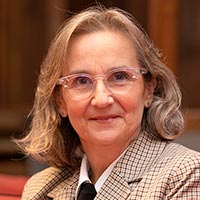 Mónica Goded
Profesora de Economía aplicada al sector turístico
Professor of Economics Applied to the Tourism Sector
Es doctora en Economía por la Universidad Complutense de Madrid y licenciada en Administración y Dirección de Empresas por la Universidad Pontificia Comillas - ICADE. Desde 1987 ha realizado labores docentes e investigadoras, tanto en grado como en postgrado, en la Universidad San Pablo CEU; en la Universidad de Deusto; en la UNIR y en la Universidad Pontificia Comillas - ICADE.
Actualmente es miembro del claustro de la Universidad Nebrija en la que dirige el Grado en Economía y Negocios Internacionales (a distancia).
Cuenta con la acreditación de la ACAP en las figuras de Profesor Contratado Doctor y Profesor Doctor de Universidad Privada. Es autora de diversas publicaciones científicas en el ámbito de la Economía Internacional y el Desarrollo. Ha colaborado en diferentes medios de divulgación y es evaluadora externa en revistas de su ámbito de especialización. Ha participado en varios proyectos de investigación financiados por la Secretaría de Estado para la Cooperación Internacional y para Iberoamérica; la Comunidad de Madrid; el Ayuntamiento de Madrid; la Dirección de Cooperación del Gobierno Vasco y el Ministerio de Ciencia e Innovación.
Mónica Goded
Profesora de Economía aplicada al sector turístico
Professor of Economics Applied to the Tourism Sector
Es doctora en Economía por la Universidad Complutense de Madrid y licenciada en Administración y Dirección de Empresas por la Universidad Pontificia Comillas - ICADE. Desde 1987 ha realizado labores docentes e investigadoras, tanto en grado como en postgrado, en la Universidad San Pablo CEU; en la Universidad de Deusto; en la UNIR y en la Universidad Pontificia Comillas - ICADE.
Actualmente es miembro del claustro de la Universidad Nebrija en la que dirige el Grado en Economía y Negocios Internacionales (a distancia).
Cuenta con la acreditación de la ACAP en las figuras de Profesor Contratado Doctor y Profesor Doctor de Universidad Privada. Es autora de diversas publicaciones científicas en el ámbito de la Economía Internacional y el Desarrollo. Ha colaborado en diferentes medios de divulgación y es evaluadora externa en revistas de su ámbito de especialización. Ha participado en varios proyectos de investigación financiados por la Secretaría de Estado para la Cooperación Internacional y para Iberoamérica; la Comunidad de Madrid; el Ayuntamiento de Madrid; la Dirección de Cooperación del Gobierno Vasco y el Ministerio de Ciencia e Innovación.
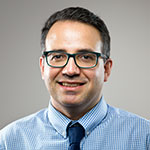 Jorge Hernando Cuñado
Profesor de La empresa y su entorno
Professor of The Company and its Environment
Coordinador Internacional de la Facultad de Ciencias Sociales. Profesor de Economía y Empresa.
Jorge Hernando Cuñado
Profesor de La empresa y su entorno
Professor of The Company and its Environment
Coordinador Internacional de la Facultad de Ciencias Sociales. Profesor de Economía y Empresa.Doctor en Fundamentos de Economía. Universidad Complutense.
Programa Superior en Dirección de Ventas. ESIC
Certificate of Proficiency in English. Cambridge University.
Máster Universitario en Formación del Profesorado de Secundaria UNED.
Experiencia laboral como Consultor de Fondos Europeos en el Ministerio de Economía.
Experiencia Internacional: Accenture Ireland, Citigroup Ireland.
Experiencia docente en las Universidades de París-Sorbona, Coímbra, Portsmouth y Münster Applied Sciences dentro del programa Erasmus Plus.
Autor de diversos artículos científicos y de prensa.
 Hendrikus Cristina Jacoba Vermeulen
Profesor de Contabilidad financiera
Professor of Financial Accounting
Licenciado en Administración de Empresas por Fontys Business School (Eindhoven, Países Bajos); Máster en Business Administration, especialidad International Business, por European University (EU Business School, Amberes, Bélgica); Máster en Business Administration, especialidad International Finance & Banking, por University of San Francisco (EE. UU.); Coach Ejecutivo, Coach de Equipos y Mentor Coach por la Escuela Europea de Coaching (Madrid). Erik Vermeulen inició su trayectoria profesional en el ámbito de banca corporativa internacional, trabajando durante 25 años para Rabobank en Países Bajos, España, Italia y Portugal, liderando equipos comerciales y asesorando a empresas en su internacionalización. Su perfil profesional incluye 5 años de experiencia colaborando con la Escuela Europea de Coaching, como coach ejecutivo y de equipos, trabajando con empresas cotizadas líderes de sus mercados, en desafíos de liderazgo. Colabora con la Embajada de los Países Bajos en iniciativas puntuales, entre ellas la promoción de los Países Bajos como destino de inversiones empresariales, y la elección de ‘empresario neerlandés del año’.Como profesor asociado de la Universidad Nebrija, imparte asignaturas en áreas de la empresa internacional, financiación empresarial y contabilidad.
Hendrikus Cristina Jacoba Vermeulen
Profesor de Contabilidad financiera
Professor of Financial Accounting
Licenciado en Administración de Empresas por Fontys Business School (Eindhoven, Países Bajos); Máster en Business Administration, especialidad International Business, por European University (EU Business School, Amberes, Bélgica); Máster en Business Administration, especialidad International Finance & Banking, por University of San Francisco (EE. UU.); Coach Ejecutivo, Coach de Equipos y Mentor Coach por la Escuela Europea de Coaching (Madrid). Erik Vermeulen inició su trayectoria profesional en el ámbito de banca corporativa internacional, trabajando durante 25 años para Rabobank en Países Bajos, España, Italia y Portugal, liderando equipos comerciales y asesorando a empresas en su internacionalización. Su perfil profesional incluye 5 años de experiencia colaborando con la Escuela Europea de Coaching, como coach ejecutivo y de equipos, trabajando con empresas cotizadas líderes de sus mercados, en desafíos de liderazgo. Colabora con la Embajada de los Países Bajos en iniciativas puntuales, entre ellas la promoción de los Países Bajos como destino de inversiones empresariales, y la elección de ‘empresario neerlandés del año’.Como profesor asociado de la Universidad Nebrija, imparte asignaturas en áreas de la empresa internacional, financiación empresarial y contabilidad.
 César Lapuente Álvarez
Profesor de Nuevas tecnologías en el ámbito turístico
Professor of New Technologies in the field of tourism
Licenciado en Ciencias Políticas y Sociología (U. Complutense). Erasmus DEA Démographie économique (Institut d’Etudes Politiques - Paris). Especialista en Análisis de datos (Centro de Investigaciones Sociológicas). Actualmente Doctorando en Turismo (U. Alicante).
Cuenta con experiencia profesional en el ámbito de las tecnologías y el turismo de más de 25 años: Analista de datos (Instituto de Estudios Turísticos), Gerente de Inteligencia de mercado (Jazztel), Director de Inteligencia de Negocio y Sistemas de Información (Broadnet Consorcio), CEO y Fundador (Alborgis, empresa de tecnología especializada en los SIG), CEO & Founder (Albor FZE, empresa de tecnología en automatización de procesos – Emiratos Árabes), General Manager (44 Screens/Ohrizon, empresa francesa de mediación digital en turismo), Business Manager (Makina Corpus, empresa francesa de tecnología Open Source), Founder (Digital-Trek, empresa francesa especializada en proyectos digitales para turismo de naturaleza).
César Lapuente Álvarez
Profesor de Nuevas tecnologías en el ámbito turístico
Professor of New Technologies in the field of tourism
Licenciado en Ciencias Políticas y Sociología (U. Complutense). Erasmus DEA Démographie économique (Institut d’Etudes Politiques - Paris). Especialista en Análisis de datos (Centro de Investigaciones Sociológicas). Actualmente Doctorando en Turismo (U. Alicante).
Cuenta con experiencia profesional en el ámbito de las tecnologías y el turismo de más de 25 años: Analista de datos (Instituto de Estudios Turísticos), Gerente de Inteligencia de mercado (Jazztel), Director de Inteligencia de Negocio y Sistemas de Información (Broadnet Consorcio), CEO y Fundador (Alborgis, empresa de tecnología especializada en los SIG), CEO & Founder (Albor FZE, empresa de tecnología en automatización de procesos – Emiratos Árabes), General Manager (44 Screens/Ohrizon, empresa francesa de mediación digital en turismo), Business Manager (Makina Corpus, empresa francesa de tecnología Open Source), Founder (Digital-Trek, empresa francesa especializada en proyectos digitales para turismo de naturaleza).
 Helena López-Casares Pertusa
Profesora de Emprendimiento en turismo
Professor of Entrepreneurship in Tourism
Doctora en Ciencias Económicas y Empresariales por la Universidad Rey Juan Carlos de Madrid, siendo su especialidad doctoral la neurociencia cognitiva organizacional. Su tesis, titulada Neuromanagement, la necesidad de nuevos paradigmas en el mundo empresarial del siglo XXI, obtuvo una calificación de sobresaliente cum laude. Es licenciada en Ciencias de la Información de la Universidad Complutense de Madrid y su Diploma de Estudios Avanzados (DEA), que le dio la suficiencia investigadora, versó sobre la comunicación interna en la empresa. Es máster en Marketing y Comunicación por IDE CESEM, experta universitaria en Comunicación Pública y Defensa por la UNED, posgrado en dirección de relaciones públicas por ECOL-Universidad de Barcelona y máster en Neuromanagement comercial por ESCO. Es coach ejecutiva por la Escuela Transpersonal de Coaching. Posee una experiencia de 18 años en formación y docencia. Colabora con la Universidad Europea de Madrid, con la Universidad Internacional de Andalucía, con la Universidad CEU San Pablo de Madrid, con la Universidad Rey Juan Carlos de Madrid, con la Universidad Complutense de Madrid y con la Universidad Jaime I de Castellón en sus programas de posgrado, así como con las escuelas de negocio EUDE, IDE CESEM, Galicia Business School y CMI Business School. Las materias que imparte están relacionadas con la neurociencia aplicada al crecimiento personal y profesional, la aplicación de la conciencia a los negocios, el emprendimiento y la innovación, la inteligencia emocional, la comunicación, el liderazgo, la creatividad, el trabajo en equipo o el coaching. Su experiencia profesional ha estado ligada al mundo de la comunicación corporativa, de la marca y del marketing, áreas que ahora trabaja desde la consultoría y la docencia. Colabora en la gestión de planes de gestión del cambio, de comunicación interna y externa, así como de gestión de personas en planes de transformación empresarial para distintas consultoras. Ha trabajado en medios de comunicación como Vaughan Radio y Televisión, TVE o Gestiona Radio. Es autora de siete libros, entre ellos Nadal, pasión y coraje, Equipos 10 y Emprende con Richard Vaughan. Es miembro de ANE, Academia de Neurociencia y Educación. En relación a la asignatura y a las competencias profesionales del área ha publicado: López-Casares, H. (2014). Emprende con Richard Vaughan. Madrid: Editorial Libros Libres.
Helena López-Casares Pertusa
Profesora de Emprendimiento en turismo
Professor of Entrepreneurship in Tourism
Doctora en Ciencias Económicas y Empresariales por la Universidad Rey Juan Carlos de Madrid, siendo su especialidad doctoral la neurociencia cognitiva organizacional. Su tesis, titulada Neuromanagement, la necesidad de nuevos paradigmas en el mundo empresarial del siglo XXI, obtuvo una calificación de sobresaliente cum laude. Es licenciada en Ciencias de la Información de la Universidad Complutense de Madrid y su Diploma de Estudios Avanzados (DEA), que le dio la suficiencia investigadora, versó sobre la comunicación interna en la empresa. Es máster en Marketing y Comunicación por IDE CESEM, experta universitaria en Comunicación Pública y Defensa por la UNED, posgrado en dirección de relaciones públicas por ECOL-Universidad de Barcelona y máster en Neuromanagement comercial por ESCO. Es coach ejecutiva por la Escuela Transpersonal de Coaching. Posee una experiencia de 18 años en formación y docencia. Colabora con la Universidad Europea de Madrid, con la Universidad Internacional de Andalucía, con la Universidad CEU San Pablo de Madrid, con la Universidad Rey Juan Carlos de Madrid, con la Universidad Complutense de Madrid y con la Universidad Jaime I de Castellón en sus programas de posgrado, así como con las escuelas de negocio EUDE, IDE CESEM, Galicia Business School y CMI Business School. Las materias que imparte están relacionadas con la neurociencia aplicada al crecimiento personal y profesional, la aplicación de la conciencia a los negocios, el emprendimiento y la innovación, la inteligencia emocional, la comunicación, el liderazgo, la creatividad, el trabajo en equipo o el coaching. Su experiencia profesional ha estado ligada al mundo de la comunicación corporativa, de la marca y del marketing, áreas que ahora trabaja desde la consultoría y la docencia. Colabora en la gestión de planes de gestión del cambio, de comunicación interna y externa, así como de gestión de personas en planes de transformación empresarial para distintas consultoras. Ha trabajado en medios de comunicación como Vaughan Radio y Televisión, TVE o Gestiona Radio. Es autora de siete libros, entre ellos Nadal, pasión y coraje, Equipos 10 y Emprende con Richard Vaughan. Es miembro de ANE, Academia de Neurociencia y Educación. En relación a la asignatura y a las competencias profesionales del área ha publicado: López-Casares, H. (2014). Emprende con Richard Vaughan. Madrid: Editorial Libros Libres.
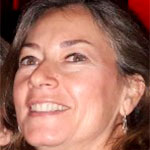 Isabel López Briones
Profesora de Marketing Turístico ‐ E‐commerce en el sector turístico ‐ Marketing y comunicación de eventos
Professor of Tourism Marketing - E-commerce in the Tourism Sector - Marketing and Event Communication
Licenciada en Geografía (Universidad Autónoma de Madrid), Diplomada en Formación de Profesorado (Universidad Autónoma de Madrid), y Senior Executive por ESADE Business School, ha desarrollado su carrera profesional dentro del sector turístico, en puestos de responsabilidad de diferentes áreas, como marketing, comunicación, dirección de proyectos o desarrollo de negocio, para empresas privadas y entidades públicas. Entre las primeras ha trabajado, por ejemplo, en distribución turística (Travelport-Galileo), alojamiento (BeMate), o consultoría (Grupo Expertus). Dentro del sector público comenzó su trayectoria trabajando en promoción turística (Turismo Madrid), culminando esa etapa como Gerente del Cluster de Turismo de la Comunidad de Madrid. Conoce también el mundo del emprendimiento, habiendo formado parte del equipo de Sherpandipity. Actualmente combina su trabajo como profesional con la labor docente, impartiendo clases en la Universidad Nebrija.
Isabel López Briones
Profesora de Marketing Turístico ‐ E‐commerce en el sector turístico ‐ Marketing y comunicación de eventos
Professor of Tourism Marketing - E-commerce in the Tourism Sector - Marketing and Event Communication
Licenciada en Geografía (Universidad Autónoma de Madrid), Diplomada en Formación de Profesorado (Universidad Autónoma de Madrid), y Senior Executive por ESADE Business School, ha desarrollado su carrera profesional dentro del sector turístico, en puestos de responsabilidad de diferentes áreas, como marketing, comunicación, dirección de proyectos o desarrollo de negocio, para empresas privadas y entidades públicas. Entre las primeras ha trabajado, por ejemplo, en distribución turística (Travelport-Galileo), alojamiento (BeMate), o consultoría (Grupo Expertus). Dentro del sector público comenzó su trayectoria trabajando en promoción turística (Turismo Madrid), culminando esa etapa como Gerente del Cluster de Turismo de la Comunidad de Madrid. Conoce también el mundo del emprendimiento, habiendo formado parte del equipo de Sherpandipity. Actualmente combina su trabajo como profesional con la labor docente, impartiendo clases en la Universidad Nebrija.
 Francisco Javier Navarro Meneses
Profesor de Economía aplicada al sector Turístico ‐ Emprendimiento en turismo ‐ Tendencias de la demanda turística ‐ Evaluación del desarrollo de capacidades en la empresa
Professor of Economics Applied to the Tourism Sector - Entrepreneurship in Tourism - Trends in Tourism Demand - Evaluation of the Development of Skills in the Company
Doctor en Economía y Gestión Empresarial por la Universidad de Alcalá (2016). Previamente obtuvo su Máster MBA Ejecutivo en el Instituto de Empresa de Madrid, en la especialidad de operaciones y producción. Su trabajo de doctorado se concentró en la aplicación de las bases del paradigma de la complejidad a la teoría de la firma con la finalidad de formular unas nuevas bases teóricas y metodologías que explican el comportamiento de la firma. Actualmente es profesor en el Departamento de Turismo de la Universidad Nebrija, donde dirige programas de Máster y títulos propios. Anteriormente a su incorporación al ámbito universitario ha desarrollado su carrera profesional como consultor internacional de negocios, sector en el que cuenta con una experiencia de veinte años como consultor especializado en la transformación estratégica de las Administraciones Públicas, y ha ocupado diversos puestos de responsabilidad. Ha sido fundador y CEO de diversas empresas en el sector de la ingeniería, transporte, comercio electrónico y consultoría de negocios.
Francisco Javier Navarro Meneses
Profesor de Economía aplicada al sector Turístico ‐ Emprendimiento en turismo ‐ Tendencias de la demanda turística ‐ Evaluación del desarrollo de capacidades en la empresa
Professor of Economics Applied to the Tourism Sector - Entrepreneurship in Tourism - Trends in Tourism Demand - Evaluation of the Development of Skills in the Company
Doctor en Economía y Gestión Empresarial por la Universidad de Alcalá (2016). Previamente obtuvo su Máster MBA Ejecutivo en el Instituto de Empresa de Madrid, en la especialidad de operaciones y producción. Su trabajo de doctorado se concentró en la aplicación de las bases del paradigma de la complejidad a la teoría de la firma con la finalidad de formular unas nuevas bases teóricas y metodologías que explican el comportamiento de la firma. Actualmente es profesor en el Departamento de Turismo de la Universidad Nebrija, donde dirige programas de Máster y títulos propios. Anteriormente a su incorporación al ámbito universitario ha desarrollado su carrera profesional como consultor internacional de negocios, sector en el que cuenta con una experiencia de veinte años como consultor especializado en la transformación estratégica de las Administraciones Públicas, y ha ocupado diversos puestos de responsabilidad. Ha sido fundador y CEO de diversas empresas en el sector de la ingeniería, transporte, comercio electrónico y consultoría de negocios.
 Li Ning
Profesor de Lenguas Modernas IV: Chino I ‐ Lenguas Modernas VI: Chino II ‐ Lenguas Modernas VII: Chino III
Professor of Modern Languages IV: Chinese I - Modern Languages VI: Chinese II - Modern Languages VII: Chinese III
Máster en Traducción e Interpretación Hispánica en la Universidad de los Estudios Extranjeros de Guangzhou, China. Licenciada en Filología Hispánica por la Universidad de Nanchang, China (2017). En 2019, tuvo la oportunidad de estudiar en la Facultad de Letras de la Universidad de Castilla-La Mancha. Ha trabajado como profesora de español e inglés en China. Ha obtenido la certificación del Entrenamiento de CLEC (El Centre for Language Education and Cooperation) para Profesores Voluntarios de Chino como Lengua Extranjera en 2022.
Li Ning
Profesor de Lenguas Modernas IV: Chino I ‐ Lenguas Modernas VI: Chino II ‐ Lenguas Modernas VII: Chino III
Professor of Modern Languages IV: Chinese I - Modern Languages VI: Chinese II - Modern Languages VII: Chinese III
Máster en Traducción e Interpretación Hispánica en la Universidad de los Estudios Extranjeros de Guangzhou, China. Licenciada en Filología Hispánica por la Universidad de Nanchang, China (2017). En 2019, tuvo la oportunidad de estudiar en la Facultad de Letras de la Universidad de Castilla-La Mancha. Ha trabajado como profesora de español e inglés en China. Ha obtenido la certificación del Entrenamiento de CLEC (El Centre for Language Education and Cooperation) para Profesores Voluntarios de Chino como Lengua Extranjera en 2022.
 Elena Ortíz Terán
Profesora de Estadística Aplicada
Professor
Doctora en Ciencias Sociales y Jurídicas por la Universidad Rey Juan Carlos. Ha realizado sus estudios en Administración y Dirección de Empresas en el Colegio Universitario de Estudios Financieros (CUNEF), London School of Economics y Wharton Business School, así como los de Derecho en la Universidad Complutense de Madrid. Tiene un Máster en Neuromanagement por la Universidad Rey Juan Carlos y dos especializaciones en Capital Riesgo, Fusiones y Financiación de Adquisiciones y en Mercados de Capitales y Financiaciones Estructuradas por el Instituto de Estudios Bursátiles. Cuenta con una larga estancia de investigación en Harvard Medical School y su principal área de investigación es la neuroeconomía.
Elena Ortíz Terán
Profesora de Estadística Aplicada
Professor
Doctora en Ciencias Sociales y Jurídicas por la Universidad Rey Juan Carlos. Ha realizado sus estudios en Administración y Dirección de Empresas en el Colegio Universitario de Estudios Financieros (CUNEF), London School of Economics y Wharton Business School, así como los de Derecho en la Universidad Complutense de Madrid. Tiene un Máster en Neuromanagement por la Universidad Rey Juan Carlos y dos especializaciones en Capital Riesgo, Fusiones y Financiación de Adquisiciones y en Mercados de Capitales y Financiaciones Estructuradas por el Instituto de Estudios Bursátiles. Cuenta con una larga estancia de investigación en Harvard Medical School y su principal área de investigación es la neuroeconomía.
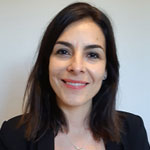 Cristina Peña González
Profesora de Turismo de negocios y eventos ‐ Diseño y organización de eventos
Professor of Business and Events Tourism - Design and Organization of Events
Doctoranda en la Universidad Antonio de Nebrija en el Doctorado Interuniversitario de Turismo. Diplomada en Turismo por la Universidad Rey Juan Carlos y Máster en Formación del Profesorado en la especialidad de Turismo por la misma universidad. Técnico Superior en Gestión y Comercialización Turísticas. Cuenta con una amplia trayectoria profesional en diferentes sectores turísticos tales como centrales de reservas, hoteles y especialmente en agencias de viajes en el subsector M.I.C.E, donde ha desarrollado su carrera durante los últimos 14 años, gestionando eventos deportivos a nivel nacional e internacional así como eventos corporativos. Actualmente es MICE Sales Manager en Globalia Meetings & Events. Con vocación docente, compagina su cargo desde 2020 con su puesto de profesora asociada de Turismo de Congresos y Eventos (MICE) en la Universidad Nebrija.
Cristina Peña González
Profesora de Turismo de negocios y eventos ‐ Diseño y organización de eventos
Professor of Business and Events Tourism - Design and Organization of Events
Doctoranda en la Universidad Antonio de Nebrija en el Doctorado Interuniversitario de Turismo. Diplomada en Turismo por la Universidad Rey Juan Carlos y Máster en Formación del Profesorado en la especialidad de Turismo por la misma universidad. Técnico Superior en Gestión y Comercialización Turísticas. Cuenta con una amplia trayectoria profesional en diferentes sectores turísticos tales como centrales de reservas, hoteles y especialmente en agencias de viajes en el subsector M.I.C.E, donde ha desarrollado su carrera durante los últimos 14 años, gestionando eventos deportivos a nivel nacional e internacional así como eventos corporativos. Actualmente es MICE Sales Manager en Globalia Meetings & Events. Con vocación docente, compagina su cargo desde 2020 con su puesto de profesora asociada de Turismo de Congresos y Eventos (MICE) en la Universidad Nebrija.
 Ángeles Quevedo Atienza
Profesora de Lenguas Modernas I: Francés I ‐ II // Lenguas Modernas II: Francés II ‐ III // Lenguas Modernas III: Francés III ‐ IV //Lenguas Modernas IV: Francés I ‐ II / Lenguas Modernas VI: Francés II‐III // Lenguas Modernas VII: Francés III‐ IV
Professor of Modern Languages I: French I - II // Modern Languages II: French II - III // Modern Languages III: French III - IV // Modern Languages IV: French I - II / Modern Languages VI: French II-III / / Modern Languages VII: French III‐IV
Doctora en Lingüística Aplicada a la enseñanza de lenguas (Universidad de Alicante), Master en francés lengua extranjera, lengua de especialidad y lenguaje académico (FLE-FLS-FOS) en milieux scolaires et entrepreneurial (Université d’Artois, Francia) y Máster en lingüística aplicada a la enseñanza de español lengua extranjera (Universidad de Nebrija). Licenciatura en Traducción e Interpretación (Universidad de Nebrija). Experiencia profesional en docencia de Lengua y Cultura francesa y española, traducción general, traducción e interpretación especializada en el ámbito comercial y económico de inglés, francés y español. Su línea de investigación es la enseñanza y aprendizaje de lenguas extranjeras en contexto especializado (lenguaje profesional y académico) y la integración de la interculturalidad en clase.
Ángeles Quevedo Atienza
Profesora de Lenguas Modernas I: Francés I ‐ II // Lenguas Modernas II: Francés II ‐ III // Lenguas Modernas III: Francés III ‐ IV //Lenguas Modernas IV: Francés I ‐ II / Lenguas Modernas VI: Francés II‐III // Lenguas Modernas VII: Francés III‐ IV
Professor of Modern Languages I: French I - II // Modern Languages II: French II - III // Modern Languages III: French III - IV // Modern Languages IV: French I - II / Modern Languages VI: French II-III / / Modern Languages VII: French III‐IV
Doctora en Lingüística Aplicada a la enseñanza de lenguas (Universidad de Alicante), Master en francés lengua extranjera, lengua de especialidad y lenguaje académico (FLE-FLS-FOS) en milieux scolaires et entrepreneurial (Université d’Artois, Francia) y Máster en lingüística aplicada a la enseñanza de español lengua extranjera (Universidad de Nebrija). Licenciatura en Traducción e Interpretación (Universidad de Nebrija). Experiencia profesional en docencia de Lengua y Cultura francesa y española, traducción general, traducción e interpretación especializada en el ámbito comercial y económico de inglés, francés y español. Su línea de investigación es la enseñanza y aprendizaje de lenguas extranjeras en contexto especializado (lenguaje profesional y académico) y la integración de la interculturalidad en clase.
 Ana Quintana Jiménez
Profesora de Entorno jurídico‐legal en turismo
Professor of Legal Environment in Tourism
Doctora en Turismo por la Universidad Antonio de Nebrija, licenciada en Derecho por la Universidad de Alcalá, (CEU Luis Vives), y programa experto Derecho Comunitario 1993/1997 Universidad de Alcalá, (CEU Luis Vives), profesora acreditada por ANECA. Experiencia en el ámbito laboral como abogada en ejercicio (1997), Colegiada en el ICAM Nº 61946 (área de Derecho Civil y Penal), en el ámbito empresarial con experiencia en el sector oleícola, desarrollada en el ámbito de la agricultura ecológica, entre los años 2005 a 2018. Ha asumido cargos de gestión, como la dirección del Master oficial en Derecho Empresarial, (2007/2009), Coordinación de Doctorado en Turismo, (2007/2015), del Master oficial en Empresas y Mercados Turísticos, (2008/2011) del Master universitario en Turismo: gestión de empresas y destinos turísticos, (2011/2015), del grado en Derecho, (2015/actualidad), y del departamento de Derecho desde septiembre de 2015 hasta septiembre de 2017. Actualmente, compagina su labor investigadora, estando las principales líneas de investigación ligadas al Derecho del Turismo y al área de Seguridad, (tesis doctoral: “Análisis normativo del aprovechamiento por turnos de bienes de uso turístico como solución al problema de la estacionalidad y su incidencia en el mercado turístico), junto con la labor de gestión, como directora del Grado en Derecho, y como profesora de Derecho Romano, Fundamentos de Derecho Civil, del grado en Derecho, del grado en Seguridad, y de Legislación turística y Entorno Jurídico-Legal en Turismo en el grado en Turismo en la misma universidad.
Ana Quintana Jiménez
Profesora de Entorno jurídico‐legal en turismo
Professor of Legal Environment in Tourism
Doctora en Turismo por la Universidad Antonio de Nebrija, licenciada en Derecho por la Universidad de Alcalá, (CEU Luis Vives), y programa experto Derecho Comunitario 1993/1997 Universidad de Alcalá, (CEU Luis Vives), profesora acreditada por ANECA. Experiencia en el ámbito laboral como abogada en ejercicio (1997), Colegiada en el ICAM Nº 61946 (área de Derecho Civil y Penal), en el ámbito empresarial con experiencia en el sector oleícola, desarrollada en el ámbito de la agricultura ecológica, entre los años 2005 a 2018. Ha asumido cargos de gestión, como la dirección del Master oficial en Derecho Empresarial, (2007/2009), Coordinación de Doctorado en Turismo, (2007/2015), del Master oficial en Empresas y Mercados Turísticos, (2008/2011) del Master universitario en Turismo: gestión de empresas y destinos turísticos, (2011/2015), del grado en Derecho, (2015/actualidad), y del departamento de Derecho desde septiembre de 2015 hasta septiembre de 2017. Actualmente, compagina su labor investigadora, estando las principales líneas de investigación ligadas al Derecho del Turismo y al área de Seguridad, (tesis doctoral: “Análisis normativo del aprovechamiento por turnos de bienes de uso turístico como solución al problema de la estacionalidad y su incidencia en el mercado turístico), junto con la labor de gestión, como directora del Grado en Derecho, y como profesora de Derecho Romano, Fundamentos de Derecho Civil, del grado en Derecho, del grado en Seguridad, y de Legislación turística y Entorno Jurídico-Legal en Turismo en el grado en Turismo en la misma universidad.
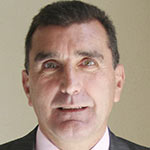 Francisco Javier Ramos González
Profesor de Tecnología aplicada a la empresa
Professor of Technology Applied to Business
Doctor en Ciencias Económicas y Empresariales. Licenciado en Psicología. Diplomado en Psicología Industrial. Licenciado en Derecho. Es experto en la conexión entre la Dirección Estratégica, la estructura organizativa y las Políticas y Prácticas de Recursos Humanos en su relación con la productividad y rentabilidad de las organizaciones. Ha realizado estancias de investigación en diferentes Universidades Nacionales e Internacionales. Su labor investigadora se desarrolla fundamentalmente en el ámbito de consultoría, la cual, se centra en la conexión entre la Dirección Estratégica, la Estructura Organizativa, las Prácticas de Recursos Humanos y el Sistema de Operaciones. Su actividad docente se centra en el ámbito del Diseño de la Organización, Dirección de Recursos Humanos, Economía de la Empresa, Creación de empresas, Organización y Dirección, Dirección Estratégica y Política de Empresa, Coaching y Desarrollo Personal y Dirección de Producción y Operaciones. Ha impartido docencia en Cursos de Postgrado y Másteres Universitarios en la Universidad Complutense de Madrid, Universidad Alfonso X el Sabio, Universidad Pontificia Comillas de Madrid y Universidad Politécnica de Madrid. En el ámbito universitario, ha ostentado cargos de gestión como director del programa "Psicología Aplicada a la Empresa" en la Universidad Pontificia Comillas de Madrid. Asimismo, también cuenta con experiencia profesional como Socio Director Boston Asesores, Jefe del Área de Recursos Humanos del Instituto Marítimo Español y Técnico de Selección de CEPSA.
Francisco Javier Ramos González
Profesor de Tecnología aplicada a la empresa
Professor of Technology Applied to Business
Doctor en Ciencias Económicas y Empresariales. Licenciado en Psicología. Diplomado en Psicología Industrial. Licenciado en Derecho. Es experto en la conexión entre la Dirección Estratégica, la estructura organizativa y las Políticas y Prácticas de Recursos Humanos en su relación con la productividad y rentabilidad de las organizaciones. Ha realizado estancias de investigación en diferentes Universidades Nacionales e Internacionales. Su labor investigadora se desarrolla fundamentalmente en el ámbito de consultoría, la cual, se centra en la conexión entre la Dirección Estratégica, la Estructura Organizativa, las Prácticas de Recursos Humanos y el Sistema de Operaciones. Su actividad docente se centra en el ámbito del Diseño de la Organización, Dirección de Recursos Humanos, Economía de la Empresa, Creación de empresas, Organización y Dirección, Dirección Estratégica y Política de Empresa, Coaching y Desarrollo Personal y Dirección de Producción y Operaciones. Ha impartido docencia en Cursos de Postgrado y Másteres Universitarios en la Universidad Complutense de Madrid, Universidad Alfonso X el Sabio, Universidad Pontificia Comillas de Madrid y Universidad Politécnica de Madrid. En el ámbito universitario, ha ostentado cargos de gestión como director del programa "Psicología Aplicada a la Empresa" en la Universidad Pontificia Comillas de Madrid. Asimismo, también cuenta con experiencia profesional como Socio Director Boston Asesores, Jefe del Área de Recursos Humanos del Instituto Marítimo Español y Técnico de Selección de CEPSA.
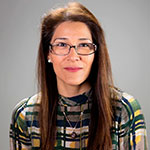 Paola Rodas Paredes
Profesora de Entorno jurídico‐legal en turismo
Professor of Legal Environment in Tourism
Directora del Máster en Acceso a la Abogacía (Modalidad presencial )Doctora en Derecho con mención Europea por la Universidad de Valencia (EG). Máster en Asesoría Jurídica de Empresas por la Universidad Jaime I, Especialista Universitaria en Educación Superior por la Universidad Rovira I Virgili. Acreditada a Profesora Titular de Universidad por ANECA, fue Becaria pre‐doctoral FPI en la Universidad de Valencia donde comenzó su carrera académica‐docente. A partir de 2009 en la Universidad Rovira I Virgili de Tarragona ha sido docente de Grado y Postgrado de asignaturas como Derecho Mercantil I, Derecho Mercantil II, Derecho de los Mercados Internacionales, Derecho de la Competencia, etc. Desde 2011 dirige Trabajos Fin de Grado y Trabajos Fin de Máster en diversas titulaciones. Ha dirigido una tesis doctoral con mención internacional (2019) que obtuvo sobresaliente cum laude. Es autora de dos monografías y multitud de publicaciones en revistas de reconocido prestigio. Ha realizado estancias de investigación en Londres, Hamburgo y Boston. Tiene acreditados dos sexenios de investigación y dos quinquenios de docencia. En la actualidad es Directora del Máster Universitario de Acceso a la Abogacía (modalidad presencial) y del Máster en Derecho de los Negocios Internacionales y coordina el área de Derecho Mercantil en la Facultad de Ciencias Sociales
Paola Rodas Paredes
Profesora de Entorno jurídico‐legal en turismo
Professor of Legal Environment in Tourism
Directora del Máster en Acceso a la Abogacía (Modalidad presencial )Doctora en Derecho con mención Europea por la Universidad de Valencia (EG). Máster en Asesoría Jurídica de Empresas por la Universidad Jaime I, Especialista Universitaria en Educación Superior por la Universidad Rovira I Virgili. Acreditada a Profesora Titular de Universidad por ANECA, fue Becaria pre‐doctoral FPI en la Universidad de Valencia donde comenzó su carrera académica‐docente. A partir de 2009 en la Universidad Rovira I Virgili de Tarragona ha sido docente de Grado y Postgrado de asignaturas como Derecho Mercantil I, Derecho Mercantil II, Derecho de los Mercados Internacionales, Derecho de la Competencia, etc. Desde 2011 dirige Trabajos Fin de Grado y Trabajos Fin de Máster en diversas titulaciones. Ha dirigido una tesis doctoral con mención internacional (2019) que obtuvo sobresaliente cum laude. Es autora de dos monografías y multitud de publicaciones en revistas de reconocido prestigio. Ha realizado estancias de investigación en Londres, Hamburgo y Boston. Tiene acreditados dos sexenios de investigación y dos quinquenios de docencia. En la actualidad es Directora del Máster Universitario de Acceso a la Abogacía (modalidad presencial) y del Máster en Derecho de los Negocios Internacionales y coordina el área de Derecho Mercantil en la Facultad de Ciencias Sociales
 María del Mar Rodríguez Santamaría
Profesora de nternacionalización en el sector turístico ‐ Operaciones y procesos en el sector hotelero ‐ Dirección de hoteles
Professor of Internationalization in the Tourism Sector - Operations and Processes in the Hotel Sector - Hotel Management
Doctora en Periodismo por la Universidad Complutense de Madrid, en cuya Facultad de Ciencias de la Información cursó estudios de licenciatura. Máster en Relaciones Internacionales (Escuela Diplomática de Madrid-UCM), Máster en Estudios Estratégicos (Escuela de Defensa Nacional-UCM) y con programas de doctorado en Estudios Europeos y en Problemas Contemporáneos de la Sociedad de la Información (Instituto Universitario Ortega y Gasset. UCM). Comenzó su actividad profesional como redactora en el diario ABC. Ha trabajado como reportera para los diarios La Razón y La Vanguardia, y para TVE. Es colaboradora habitual de los diarios El Mundo y Expansión, donde escribe sobre viajes y hoteles, así como de otras cabeceras nacionales e internacionales (Conde Nast Traveler, Travesías, Destinations of the World, entre otras). Responsable de la crítica hotelera semanal del suplemento Fuera de Serie (Expansión). Visita una media de 50 hoteles al año, asiste a los principales congresos y ferias del sector (ILTM, Pure, Traveler Made, WTM, etc.), realiza entrevistas a los principales actores del mundo de la hospitalidad. Como periodista de viajes, ha visitado cerca de 60 países. Imparte docencia de grado y postgrado en diferentes universidades en España, en materias relacionadas con el turismo, la hospitalidad, el lujo y la comunicación. Ha sido formadora interna para empresas de referencia en el sector (Viajes El Corte Inglés, Melia Hotels International). Ha escrito libros, artículos y desarrollado contenido de comunicación interna y externa por encargo de Banco Santander, Fundación Teatro Real, Real Fundación de Toledo, SLH, Ogilvy, Instituto de Empresa, entre otros. Durante siete años fue responsable de la Unidad de Discursos del Ministerio de Defensa del Gobierno de España. Posee acreditación lingüística para impartir docencia en inglés. A lo largo de su carrera profesional, ha recibido diferentes galardones por sus trabajos periodísticos.
María del Mar Rodríguez Santamaría
Profesora de nternacionalización en el sector turístico ‐ Operaciones y procesos en el sector hotelero ‐ Dirección de hoteles
Professor of Internationalization in the Tourism Sector - Operations and Processes in the Hotel Sector - Hotel Management
Doctora en Periodismo por la Universidad Complutense de Madrid, en cuya Facultad de Ciencias de la Información cursó estudios de licenciatura. Máster en Relaciones Internacionales (Escuela Diplomática de Madrid-UCM), Máster en Estudios Estratégicos (Escuela de Defensa Nacional-UCM) y con programas de doctorado en Estudios Europeos y en Problemas Contemporáneos de la Sociedad de la Información (Instituto Universitario Ortega y Gasset. UCM). Comenzó su actividad profesional como redactora en el diario ABC. Ha trabajado como reportera para los diarios La Razón y La Vanguardia, y para TVE. Es colaboradora habitual de los diarios El Mundo y Expansión, donde escribe sobre viajes y hoteles, así como de otras cabeceras nacionales e internacionales (Conde Nast Traveler, Travesías, Destinations of the World, entre otras). Responsable de la crítica hotelera semanal del suplemento Fuera de Serie (Expansión). Visita una media de 50 hoteles al año, asiste a los principales congresos y ferias del sector (ILTM, Pure, Traveler Made, WTM, etc.), realiza entrevistas a los principales actores del mundo de la hospitalidad. Como periodista de viajes, ha visitado cerca de 60 países. Imparte docencia de grado y postgrado en diferentes universidades en España, en materias relacionadas con el turismo, la hospitalidad, el lujo y la comunicación. Ha sido formadora interna para empresas de referencia en el sector (Viajes El Corte Inglés, Melia Hotels International). Ha escrito libros, artículos y desarrollado contenido de comunicación interna y externa por encargo de Banco Santander, Fundación Teatro Real, Real Fundación de Toledo, SLH, Ogilvy, Instituto de Empresa, entre otros. Durante siete años fue responsable de la Unidad de Discursos del Ministerio de Defensa del Gobierno de España. Posee acreditación lingüística para impartir docencia en inglés. A lo largo de su carrera profesional, ha recibido diferentes galardones por sus trabajos periodísticos.
 Enrique Salas Ruiz
Profesor de Gestión financiera en empresas turísticas
Professor of Financial Management in tourism companies
Licenciado en Derecho por IEB (2011) + Master en Bolsa y Mercados Financieros por IEB (2011). Anteriormente a su incorporación al ámbito universitario, ha desarrollado y desarrolla su carrera profesional en distintas entidades financieras internacionales durante más de 10 años, en los departamentos de Banca Privada y Asset Allocation principalmente. Es EFP (European Financial Planner), participa como invitado en distintos podcast y seminarios financieros de manera recurrente. Además, ha escrito varios artículos de opinión en periódicos y medios
Enrique Salas Ruiz
Profesor de Gestión financiera en empresas turísticas
Professor of Financial Management in tourism companies
Licenciado en Derecho por IEB (2011) + Master en Bolsa y Mercados Financieros por IEB (2011). Anteriormente a su incorporación al ámbito universitario, ha desarrollado y desarrolla su carrera profesional en distintas entidades financieras internacionales durante más de 10 años, en los departamentos de Banca Privada y Asset Allocation principalmente. Es EFP (European Financial Planner), participa como invitado en distintos podcast y seminarios financieros de manera recurrente. Además, ha escrito varios artículos de opinión en periódicos y medios
 Olga Sánchez González
Profesora de Protocolo aplicado a eventos ‐ Nuevas tecnologías en el ámbito turístico
Professor of Protocol Applied to Events - New Technologies in the Tourism Field
Doctora en Comunicación Audiovisual, Publicidad y RRPP UCM. Máster universitario en formación para el profesorado de educación secundaria, bachillerato y formación profesional. Máster en Dirección, producción y diseño de eventos. Grado en Turismo. Grado en Protocolo y Organización de Eventos. Coordinadora de ciclo formativo superior de formación profesional y profesora de distintos módulos en la rama de hostelería y turismo en formación DUAL y presencial. Profesora de Hostelería y Turismo, Protocolo, Organización de Eventos y Marketing en distintas universidades. Más de 20 años en el sector de comercialización y marketing en Hostelería y Turismo en empresas públicas y privadas.
Olga Sánchez González
Profesora de Protocolo aplicado a eventos ‐ Nuevas tecnologías en el ámbito turístico
Professor of Protocol Applied to Events - New Technologies in the Tourism Field
Doctora en Comunicación Audiovisual, Publicidad y RRPP UCM. Máster universitario en formación para el profesorado de educación secundaria, bachillerato y formación profesional. Máster en Dirección, producción y diseño de eventos. Grado en Turismo. Grado en Protocolo y Organización de Eventos. Coordinadora de ciclo formativo superior de formación profesional y profesora de distintos módulos en la rama de hostelería y turismo en formación DUAL y presencial. Profesora de Hostelería y Turismo, Protocolo, Organización de Eventos y Marketing en distintas universidades. Más de 20 años en el sector de comercialización y marketing en Hostelería y Turismo en empresas públicas y privadas.
 Coral Sánchez Villar
Profesora de Desarrollo de Competencias profesionales I ‐ Desarrollo de Competencias profesionales II
Professor of Professional Competence Development I - Professional Competence Development II
Profesora de Desarrollo de Competencias Profesionales. Licenciada en Business Management por la University of the Arts de Londres, Máster en Desarrollo Directivo e inteligencia Emocional (EAE Business School), Team Coach y Executive Coaching .
Compagina la docencia con la consultoría, formación y desarrollo del talento acompañando a directivos y manager en su desarrollo profesional y personal. También participa en programas de mentorización a estudiantes basado en la necesidad de formar y empoderar a los universitarios guiándoles en los años previos a su salida al mercado laboral.
Su actividad profesional durante 20 años se ha centrado en el sector del retail y del lujo, en compañías de gran prestigio. Dada la naturaleza de su profesión, ha vivido y trabajado en diferentes partes del mundo, lo que le ha permitido la posibilidad de liderar y gestionar equipos multiculturales, desarrollar una visión más estratégica del negocio, así como dotarle de grandes habilidades de liderazgo para el trabajo en equipo y excelencia en atención al cliente.
Le motiva potenciar al máximo el desarrollo personal y profesional de las personas poniendo foco en el aprendizaje responsable a través del disfrute y el autoconocimiento como la mejor vía para alcanzar los objetivos deseados.
Coral Sánchez Villar
Profesora de Desarrollo de Competencias profesionales I ‐ Desarrollo de Competencias profesionales II
Professor of Professional Competence Development I - Professional Competence Development II
Profesora de Desarrollo de Competencias Profesionales. Licenciada en Business Management por la University of the Arts de Londres, Máster en Desarrollo Directivo e inteligencia Emocional (EAE Business School), Team Coach y Executive Coaching .
Compagina la docencia con la consultoría, formación y desarrollo del talento acompañando a directivos y manager en su desarrollo profesional y personal. También participa en programas de mentorización a estudiantes basado en la necesidad de formar y empoderar a los universitarios guiándoles en los años previos a su salida al mercado laboral.
Su actividad profesional durante 20 años se ha centrado en el sector del retail y del lujo, en compañías de gran prestigio. Dada la naturaleza de su profesión, ha vivido y trabajado en diferentes partes del mundo, lo que le ha permitido la posibilidad de liderar y gestionar equipos multiculturales, desarrollar una visión más estratégica del negocio, así como dotarle de grandes habilidades de liderazgo para el trabajo en equipo y excelencia en atención al cliente.
Le motiva potenciar al máximo el desarrollo personal y profesional de las personas poniendo foco en el aprendizaje responsable a través del disfrute y el autoconocimiento como la mejor vía para alcanzar los objetivos deseados.
 Saida Santana Mahmut
Profesora de Desarrollo de Competencias profesionales I
Professor of Professional Competence Development I
Doctora por la Universidad Rey Juan Carlos, licenciada en Ciencias de la Información por la Universidad Complutense de Madrid, Máster en Artes Escénicas por la URJC, Máster en coaching personal y ejecutivo por la Universidad Camilo José Cela. Como actriz se formó con el catedrático de la RESAD Jorge Eines y en la Universidad de Roma Terza (DAMS), entre otras escuelas y maestros. Ha trabajado tanto en televisión como en cine y teatro, como actriz, guionista, periodista, creadora escénica y coach. Como directora, dramaturga y actriz ha representado en los últimos meses, en Miami, dos piezas de medio formato.
Saida Santana Mahmut
Profesora de Desarrollo de Competencias profesionales I
Professor of Professional Competence Development I
Doctora por la Universidad Rey Juan Carlos, licenciada en Ciencias de la Información por la Universidad Complutense de Madrid, Máster en Artes Escénicas por la URJC, Máster en coaching personal y ejecutivo por la Universidad Camilo José Cela. Como actriz se formó con el catedrático de la RESAD Jorge Eines y en la Universidad de Roma Terza (DAMS), entre otras escuelas y maestros. Ha trabajado tanto en televisión como en cine y teatro, como actriz, guionista, periodista, creadora escénica y coach. Como directora, dramaturga y actriz ha representado en los últimos meses, en Miami, dos piezas de medio formato.
 Mariano Sanz Moreno
Profesor de Desarrollo de Competencias profesionales III
Professor of Professional Competence Development III
Ingeniero Superior de Telecomunicaciones por la Universidad Politécnica de Madrid, cuenta con más de 30 años de experiencia dedicados a la enseñanza y desarrollo de profesionales y desde hace 12 años también de estudiantes universitarios como profesor especializado en tecnologías y habilidades, tanto en cursos de grado como en masters y programas de postgrado. A lo largo de su carrera profesional ha compaginado su labor docente con cargos de gestión: Director de Alcatel University, Director de Desarrollo de Negocio en FYCSA, Formación y Consultoría, Director General del Internet Training Center, Director de élogos…, desarrollando en todos ellos soluciones formativas para grandes empresas e instituciones que incorporasen soluciones innovadoras aprovechando los avances en las nuevas tecnologías. En la actualidad es Socio Director de la consultora Siempre DIGITAL, y continúa desde 2011 siendo un orgulloso miembro del claustro del Instituto Nebrija de Competencias Profesionales.
Mariano Sanz Moreno
Profesor de Desarrollo de Competencias profesionales III
Professor of Professional Competence Development III
Ingeniero Superior de Telecomunicaciones por la Universidad Politécnica de Madrid, cuenta con más de 30 años de experiencia dedicados a la enseñanza y desarrollo de profesionales y desde hace 12 años también de estudiantes universitarios como profesor especializado en tecnologías y habilidades, tanto en cursos de grado como en masters y programas de postgrado. A lo largo de su carrera profesional ha compaginado su labor docente con cargos de gestión: Director de Alcatel University, Director de Desarrollo de Negocio en FYCSA, Formación y Consultoría, Director General del Internet Training Center, Director de élogos…, desarrollando en todos ellos soluciones formativas para grandes empresas e instituciones que incorporasen soluciones innovadoras aprovechando los avances en las nuevas tecnologías. En la actualidad es Socio Director de la consultora Siempre DIGITAL, y continúa desde 2011 siendo un orgulloso miembro del claustro del Instituto Nebrija de Competencias Profesionales.
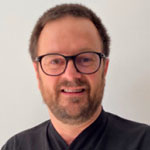 Víctor Manuel Sixto Sanjosé
Profesor de Innovación en productos turísticos
Professor of Innovation in tourism products
Es Licenciado en Ciencias Empresariales por la Universidad de Santiago de Compostela, en la que obtuvo también un Diploma de Estudios Avanzados en Economía Aplicada y un Máster en Estrategia y Marketing Político. Complementó su formación con el Máster en Desarrollo Sostenible de Destinos Turísticos de la OMT-UOC, el Máster de Innovación para el Desarrollo Empresarial por el Instituto Tecnológico de Estudios Superiores de Monterrey (México), M.B.A. por la EDAE y los programas de Liderazgo e Innovación Social y el Programme for Management Development de ESADE.
Cuenta con más de 25 años de experiencia profesional en consultoría en las áreas de desarrollo económico, emprendimiento, turismo. Emprendedor en diversos proyectos turíscos, educavos y de consultoría.
Ha desarrollado proyectos turíscos tanto en el área de Creación de Productos Turíscos y Experiencias (ACEVIN-Rutas del Vino de España, Rutas de enoturismo en el Alplano mexicano, Ruta del Vino Rías Baixas en Galicia-España, Ruta de Mezcal en San Luis Potosí-México, Ruta del Queso y el Vino en Querétaro-México, Rutas Gastronómicas de México, Rutas temácas en España), como en el Diseño de Sistemas de Cerficación Turísca (Tesoros de México, Barrios Mágicos de la Ciudad de México, Clúster de Turismo Médico en Guatemala), en Planificación Estratégica de Desnos (Agendas de Compevidad en México, Planes de desarrollo turísco territoriales, Planes de Sostenibilidad Turísca en Desnos en España) y en la idenficación, caracterización y desarrollo de Planes de Creación de Empresas Turíscas (Galicia, Valencia y Extremadura en España, AGEXPORT en Guatemala y en México en oportunidades agroturíscas para SAGARPA, México).
Es profesor del TEC de Monterrey y de la Universidad Anáhuac en México y de las Universidades de Sanago de Compostela y Universidad Nebrija en España. También ha impardo clases como Profesor Invitado en masters en la Universidad de Sanago de Compostela, Universidad Carlos III de Madrid y Universidad Anáhuac de México.
Ha desarrollado proyectos e impardo formación en España, Portugal, México, Guatemala, Nicaragua, Colombia y Ecuador.
Es autor y coautor de diversos manuales sobre desarrollo de productos turíscos, enoturismo y emprendimiento.
Víctor Manuel Sixto Sanjosé
Profesor de Innovación en productos turísticos
Professor of Innovation in tourism products
Es Licenciado en Ciencias Empresariales por la Universidad de Santiago de Compostela, en la que obtuvo también un Diploma de Estudios Avanzados en Economía Aplicada y un Máster en Estrategia y Marketing Político. Complementó su formación con el Máster en Desarrollo Sostenible de Destinos Turísticos de la OMT-UOC, el Máster de Innovación para el Desarrollo Empresarial por el Instituto Tecnológico de Estudios Superiores de Monterrey (México), M.B.A. por la EDAE y los programas de Liderazgo e Innovación Social y el Programme for Management Development de ESADE.
Cuenta con más de 25 años de experiencia profesional en consultoría en las áreas de desarrollo económico, emprendimiento, turismo. Emprendedor en diversos proyectos turíscos, educavos y de consultoría.
Ha desarrollado proyectos turíscos tanto en el área de Creación de Productos Turíscos y Experiencias (ACEVIN-Rutas del Vino de España, Rutas de enoturismo en el Alplano mexicano, Ruta del Vino Rías Baixas en Galicia-España, Ruta de Mezcal en San Luis Potosí-México, Ruta del Queso y el Vino en Querétaro-México, Rutas Gastronómicas de México, Rutas temácas en España), como en el Diseño de Sistemas de Cerficación Turísca (Tesoros de México, Barrios Mágicos de la Ciudad de México, Clúster de Turismo Médico en Guatemala), en Planificación Estratégica de Desnos (Agendas de Compevidad en México, Planes de desarrollo turísco territoriales, Planes de Sostenibilidad Turísca en Desnos en España) y en la idenficación, caracterización y desarrollo de Planes de Creación de Empresas Turíscas (Galicia, Valencia y Extremadura en España, AGEXPORT en Guatemala y en México en oportunidades agroturíscas para SAGARPA, México).
Es profesor del TEC de Monterrey y de la Universidad Anáhuac en México y de las Universidades de Sanago de Compostela y Universidad Nebrija en España. También ha impardo clases como Profesor Invitado en masters en la Universidad de Sanago de Compostela, Universidad Carlos III de Madrid y Universidad Anáhuac de México.
Ha desarrollado proyectos e impardo formación en España, Portugal, México, Guatemala, Nicaragua, Colombia y Ecuador.
Es autor y coautor de diversos manuales sobre desarrollo de productos turíscos, enoturismo y emprendimiento.
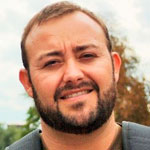 Juan Gabriel Tirado Ballesteros
Profesor de Gestión de destinos turísticos
Professor of Tourism Destination Management
Doctor en Turismo con mención internacional por la Universidad de Alicante (2017). Máster en Formación de Profesorado por la Universidad de Castilla-La Mancha (2018), Máster en Dirección y Planificación en Turismo (2012) y Diplomado en Turismo (2010) por la Universidad de Alicante. Acreditado por la ANECA como Profesor Ayudante Doctor. Cuenta con experiencia laboral en el sector hotelero. Ha sido investigador en el Instituto de Investigaciones Turísticas de la Universidad de Alicante a través de la concesión de un contrato predoctoral donde ha realizado labores de investigación y docencia. Sus líneas de investigación se centran en el estudio de las políticas para el fomento del turismo en espacios rurales y el desarrollo rural, la planificación y la gobernanza del turismo con enfoque local. Ha publicado varios artículos en revistas de investigación indexadas en Scopus y Journal Citation Report, en capítulos de libros y congresos nacionales e internacionales. Ha realizado estancias de investigación en universidades extranjeras como Cardiff Metropolitan University y L’Università degli Studi di Udine donde ha impartido seminarios sobre sus investigaciones. Cuenta con la acreditación de la ANECA en la figura de Ayudante Doctor.
Juan Gabriel Tirado Ballesteros
Profesor de Gestión de destinos turísticos
Professor of Tourism Destination Management
Doctor en Turismo con mención internacional por la Universidad de Alicante (2017). Máster en Formación de Profesorado por la Universidad de Castilla-La Mancha (2018), Máster en Dirección y Planificación en Turismo (2012) y Diplomado en Turismo (2010) por la Universidad de Alicante. Acreditado por la ANECA como Profesor Ayudante Doctor. Cuenta con experiencia laboral en el sector hotelero. Ha sido investigador en el Instituto de Investigaciones Turísticas de la Universidad de Alicante a través de la concesión de un contrato predoctoral donde ha realizado labores de investigación y docencia. Sus líneas de investigación se centran en el estudio de las políticas para el fomento del turismo en espacios rurales y el desarrollo rural, la planificación y la gobernanza del turismo con enfoque local. Ha publicado varios artículos en revistas de investigación indexadas en Scopus y Journal Citation Report, en capítulos de libros y congresos nacionales e internacionales. Ha realizado estancias de investigación en universidades extranjeras como Cardiff Metropolitan University y L’Università degli Studi di Udine donde ha impartido seminarios sobre sus investigaciones. Cuenta con la acreditación de la ANECA en la figura de Ayudante Doctor.
 Virginia Tribaldos Hernaiz
Profesora de Lengua moderna I: Alemán I‐II // Lengua Modernas II: Alemán II‐III // Lenguas Modernas III: Alemán III‐IV
Professor of Modern Languages I: German I-II // Modern Languages II: German II-III // Modern Languages III: German III-IV
Graduada por la Universidad Complutense de Madrid en Lenguas Modernas y sus Literaturas (2017), especializada en el idioma alemán. Actualmente terminando el Máster en Formación del Profesorado de Educación Secundaria y Bachillerato, Formación Profesional y Enseñanza de Idiomas. Cuenta con experiencia docente en institutos, academias y centros culturales. Método dinámico y comunicativo combinado con la integración de nuevas metodologías en la enseñanza de lenguas extranjeras.
Virginia Tribaldos Hernaiz
Profesora de Lengua moderna I: Alemán I‐II // Lengua Modernas II: Alemán II‐III // Lenguas Modernas III: Alemán III‐IV
Professor of Modern Languages I: German I-II // Modern Languages II: German II-III // Modern Languages III: German III-IV
Graduada por la Universidad Complutense de Madrid en Lenguas Modernas y sus Literaturas (2017), especializada en el idioma alemán. Actualmente terminando el Máster en Formación del Profesorado de Educación Secundaria y Bachillerato, Formación Profesional y Enseñanza de Idiomas. Cuenta con experiencia docente en institutos, academias y centros culturales. Método dinámico y comunicativo combinado con la integración de nuevas metodologías en la enseñanza de lenguas extranjeras.
 Lorenzo Vilariño López-Barranco
Profesor de Dirección de hoteles
Professor of Hotel Management
Postgrado en Gerencia y Dirección Hotelera por la universidad Politécnica de Madrid. Diplomado en Empresas y actividades Turísticas por la Escuela Superior de Turismo Sol. Comencé en diversos puestos de recepción hasta llegar a Jefe de Recepción y Revenue Manager en 3 hoteles de Madrid, dando el salto a la dirección hotelera de dos hoteles en Madrid y Guadalajara. Durante mi trayectoria he participado en la apertura de dos hoteles en Madrid.
Lorenzo Vilariño López-Barranco
Profesor de Dirección de hoteles
Professor of Hotel Management
Postgrado en Gerencia y Dirección Hotelera por la universidad Politécnica de Madrid. Diplomado en Empresas y actividades Turísticas por la Escuela Superior de Turismo Sol. Comencé en diversos puestos de recepción hasta llegar a Jefe de Recepción y Revenue Manager en 3 hoteles de Madrid, dando el salto a la dirección hotelera de dos hoteles en Madrid y Guadalajara. Durante mi trayectoria he participado en la apertura de dos hoteles en Madrid.
More Academic Information
Official Degree:Bachelor’s Degree in Tourism and Hospitality Management
Students aspiring to enroll in the Bachelor's Degree in Tourism and Hospitality Management are expected to exhibit qualities of maturity, flexibility, analytical prowess, and extroversion. These traits are essential for embarking on a degree that is characterized by its multidisciplinary nature and dynamic environment.
Prospective students would find their transition into Nebrija University's tourism studies smoother if they have prior knowledge in areas such as geography, history, languages, business creation and management, economics, and technology. Equally important is a strong interest in the tourism sector, which candidates should be able to articulate.
240 credits.
Minimum 12 ECTS credits and maximum 90 ECTS credits per enrollment and academic year
Spanish or English*
*English-taught groups will only be established if there is a minimum enrollment of 10 students opting for this modality. We assure that students who commence the program in English will have the opportunity to continue their studies in the same language until they complete the program.
- Face-to-face: 100
- School of Economics and Business: 50 places (Spanish and English)
- Felipe Moreno-Nebrija Higher Education Center: 50 places (Spanish)
- Distance learning or remote: 50
- School of Economics and Business: 50 places (Spanish and English)
 Grado
Grado Acreditado
Center responsible:School of Economics and Business
Affiliated center:Felipe Moreno - Nebrija Higher Education Center
Branch of knowledge:Social and Legal Sciences
Places offered: 150
Type of Education: Classroom attendance
Academic year it was implemented:: 2008-2009
Professional Skills Development Area (workshops): Communication, Problem Solving, Emotional Intelligence, Innovation and Creativity, Negotiation, Teamwork, Leadership, Project Management.
Languages: Spanish or English*
University Services: [+info]
Learning outcomes
Knowledge or content- K1. Know the fundamentals of tourism, as well as understand its transversal nature through the study of its different dimensions: economic, spatial, social, cultural, environmental, legal, etc.
- K2. Understand the tourism system, the market and the agents involved, as well as their interrelationships and behaviors.
- K3. Know from a theoretical and practical point of view the lexical, syntactic and discursive features of foreign languages oriented towards tourism.
- K4. Know and explain the theoretical and practical concepts related to the creation, management and direction of tourism companies at the national and international level.
- K5. Know the techniques and methods for the economic and financial analysis of tourism companies.
- K6. Know the management, operations and processes of tourism companies (accommodation, intermediation, event organization, etc.)
- K7. Understand the management functions of tourism organizations and their different areas and departments.
- K8. Know from a theoretical and practical point of view the mechanisms for the proper management of tourist destinations, from tourism policy, planning, development models, resources, tourism types, impacts generated by tourism, the sustainability of destinations.
- K9. Know the fundamental concepts of commercialization and marketing that apply to the tourism field (companies and destinations).
- K10. Know the techniques of innovation, digitization and new technologies that are applied in products, services and tourist destinations.
- S1. Interpret qualitative and quantitative data that is relevant for decision-making in the tourism field.
- S2. Apply sustainable management instruments and models for the planning and management of tourist destinations.
- S3. Manage internal and external analysis techniques and financial methods for the creation, management and direction of tourism companies.
- S4. Fluently use knowledge of foreign languages for the exchange of information related to tourism.
- S5. Apply time management, communication, leadership and team management skills in tourism.
- S6. Use information and communication technologies (ICT) in the academic field and in the different fields of tourism.
- S7. Integrate democratic principles and values and the Sustainable Development Goals in the process of generating tourism projects.
- C1. Use the techniques and methods learned to make decisions while practicing the profession, be it in companies in the tourism sector or public institutions.
- C2. Transmit to all types of audiences, national and international, in a clear and precise way, knowledge and solutions to problems that arise in the business world or in tourist destinations.
- C3. Participate in technical projects in the tourism field, taking on responsibilities in decision-making and team management.
- C4. Produce creative solutions to meet the needs raised by the actors in the tourism sector, or that emerge as a result of unforeseen situations.
- C5. Transfer the learning results of the Bachelor's Degree to a work environment through internships in centers and institutions in the field of tourism.
- C6. Integrate the knowledge acquired throughout the degree, demonstrating an understanding of theoretical and practical aspects, and apply them in the preparation of the final degree project.
Calendar ans schedules
Academic calendar Schedules First Semester 2022-23 Schedules Second Semester 2022-23
The access routes to the Bachelor’s Degree in Tourism and Hospitality Management are described below. In addition, the Antonio de Nebrija University will publish on its website the places available for the first year of the Bachelor’s Degree in Tourism and Hospitality Management.
1. Students who have a Bachelor's degree and have passed the University Access Tests in accordance with the provisions of Royal Decree 1892/2008, of November 14, which regulate the conditions for accessing official university Bachelor's degrees.
2. Likewise, and in accordance with the provisions of RD 412/2014, the following students may request admission to the university:
a) Graduates of European Baccalaureate or International Baccalaureate.
b) Students who have Baccalaureate degrees, diplomas or studies from educational systems of Member States of the European Union, or from other States with which international agreements applicable in this regard have been signed, on a reciprocal basis.
c) Students who have degrees, diplomas or studies homologated to the Baccalaureate degree of the Spanish Educational System, obtained or carried out in educational systems of States that are not members of the European Union with which international agreements have not been signed for the recognition of the Baccalaureate degree in reciprocity, without prejudice to the provisions of article 4 of RD 412/2014.
d) Students who have official degrees of Senior Technician of Vocational Training, Senior Technician of Plastic Arts and Design, or Senior Sports Technician in the Spanish Educational System, or who have degrees, diplomas or studies that have been declared equivalent or homologated to said degrees, without prejudice to the provisions of article 4 of RD 412/2014.
e) Students who have degrees, diplomas or studies, different from those equivalent to the degrees of Baccalaureate, Senior Technician of Vocational Training, Senior Technician of Plastic Arts and Design, or Senior Sports Technician in the Spanish Educational System, obtained or carried out in a Member State of the European Union or in other States with which international agreements applicable in this regard have been signed, on a reciprocal basis, when said students meet the academic requirements demanded in said Member State to access their Universities.
f) People who have passed the university entrance exam for people over 25 years of age.
g) People who have passed the access test to official Bachelor's studies for people over 40 years of age, by means of proof of work or professional experience. The admission procedures through this route can be consulted in "POA_9 Access procedure for people over 40 years old".
h) People who have passed the university entrance exam for people over 45 years of age.
i) Students who have an official university Bachelor's, Master's or equivalent degree.
j) Students who have an official university Associate’s degree, Technical Architect, Technical Engineer, Undergraduate degree, Architect, Engineer, corresponding to the previous organization of university education, or an equivalent degree.
k) Students who have completed partial foreign or Spanish university studies, or who, having completed foreign university studies, have not obtained their homologation in Spain and wish to continue their studies at a Spanish university. In this case, it will be an essential requirement that the Antonio de Nebrija University recognize at least 30 ECTS credits.
l) Students who were able to access the university according to regulations of the Spanish Educational System prior to Organic Law 8/2013, of December 9.
m) Order ECD/1941/2016, of December 22, in its sole transitory provision, establishes that it will not be necessary to pass the Baccalaureate assessment test to access the University in the following cases:
• Students who join Baccalaureate studies of the educational system defined by Organic Law 8/2013, of December 9, and who have subjects that they did not pass from the Baccalaureate of the curriculum prior to its implementation, and who take said subjects according to the curriculum of the previous educational system.
• students who obtained the Baccalaureate degree in the 2015-2016 academic year and did not access the University at the end of said year.
In both cases, and when these students do not take the test, the grade to access official university Bachelor's degree studies will be the final grade obtained in their Baccalaureate studies.
• In the case of students with special educational needs derived from disabilities, the need for possible curricular adaptations, itineraries or alternative studies will be evaluated.
At the Antonio de Nebrija University, the admission procedures established by university legislation will be carried out with particular reference to the guiding principles of access to the Spanish university: equality, merit, ability, universal accessibility and adjustment to the criteria of the European Higher Education Area.
Form and deadlines for submitting applications for admission
In order to apply for admission to any official university Bachelor's studies at the University, it will be necessary to complete the corresponding admission application on the University website, or request it at any of the university campuses within the deadlines established by the Department of University Development.
Documentation necessary for admission to Bachelor's degree studies
a) Students with University Entrance Exams (from Baccalaureate and university entrance exams for people over 25 years old): Those who have attended the University Entrance Exams must provide:
• Copy of DNI or accreditation document.
• Document with grades of the University Entrance Exams.
• Personal academic record of the grades obtained in baccalaureate.
• Record Transfer fees, stamped by the Secretary of the University where the university entrance exam (Selectividad) was taken.
b) Students who have a degree, diploma or studies equivalent to the Baccalaureate degree from educational systems of Member States of the European Union, or of other States with which international agreements applicable in this regard have been signed, on a reciprocal basis. Graduates of European Baccalaureate or International Baccalaureate.
• Copy of Passport or accreditation document.
• Document accrediting compliance with the requirements issued by the UNED or by the body to be determined.
• Document with grades obtained in the University Entrance Exams, if applicable.
• Accreditation of B2 level in Spanish, in the case of students whose nationality does not correspond to Spanish-speaking countries.
c) c) Students from Advanced Vocational Training Programs, Second Degree Vocational Training: These students must provide:
• Copy of DNI or accreditation document.
• Personal academic record indicating the grades obtained and the final numerical grade.
• Diploma or the receipt of having paid the diploma issuance fees.
• Where appropriate, document stating the result of the Specific Phase of the University Entrance Exams.
d) University graduates:
• Copy of DNI or accreditation document.
• Academic record with the grades of each of the subjects taken and the final grade average.
• Diploma or receipt of having paid the diploma issuance fees.
In the case of students with homologated foreign degrees, they must provide the following documentation:
• Copy of Passport, DNI or accreditation document.
• Homologation of the university degree.
• Equivalences of grade average of studies carried out in foreign centers.
• Accreditation of B2 level in Spanish in the case of students whose nationality does not correspond to Spanish-speaking countries.
e) Students from previous educational organizations who have not taken the general phase of the University Entrance Exams, regulated in Royal Decree 1892/2008, of November 14:
• Students from the COU (university preparation courses) prior to the 1974-75 academic year, and students who have passed the Higher Baccalaureate with state exam: copy of DNI, grade book and the grade card of the specific phase of the University Entrance Exams, if applicable.
• Students who have passed the Higher Baccalaureate, PREU and the Maturity test: copy of DNI, grade book, Maturity test card and grade card of the specific phase of the University Access Tests, if applicable.
f) Students with partial recognition of foreign studies:
These students must submit the following documentation, translated and officially legalized, if applicable:
• Recognition application form.
• Copy of Passport or accreditation document.
• Academic record accrediting the level and type of studies carried out, issued by the corresponding official Center, stating, at least, the following information: subjects taken, credits or workload for each subject, grades and table or scale for grades.
• Curriculum or table of subjects of the degree to which the subjects being recognized belong, expressly indicating the duration of those studies in academic years and the subjects that comprise it, and with the original stamp of the Center of origin, or failing that, the documentation requested in the credit recognition procedure.
• Programs of the subjects, with details of the content and scope (hours and credits) with which they have been taken, and with the original stamp of the Center of origin or, failing that, the documentation requested in the credit recognition procedure.
• Accreditation of B2 level in Spanish in the case of students whose nationality does not correspond to a Spanish-speaking country.
• Equivalences of grade averages of studies carried out in foreign centers.
i) Students requesting admission due to change of university and/or studies. Students from other Universities must submit the following documentation:
• Copy of DNI or accreditation document
• Copies stamped by the university of origin on the official content and competences programs, or teaching guides, of the different subjects passed or, failing that, the documentation requested in the credit recognition procedure
• Personal academic record of university studies started, with grade average over 10, in accordance with the provisions of Royal Decree 1125/2003 (BOE 09/18/2003).
• Photocopy of the BOE issue in which the curriculum of the degree being taken is published.
j) Access to the University for people over 45 years old.
• Copy of DNI or accreditation document.
• Certificate that accredits the passing of the Access Test for people over 45 years old (test is taken at the Antonio de Nebrija University).
k) Access to the University for people over 40 years old.
• Copy of DNI or accreditation document.
• Positive report after assessment at the Antonio de Nebrija University of all the requirements established in Art. 16 RD 412/2014.
Only the applications of those students who have submitted the required documentation within the deadlines established by the Admissions Department will be processed. In addition, the student will be asked for all the additional information that is considered appropriate in order to know the candidate's suitability for the Bachelor's degree.
For the purposes of pre-admission and admission, the assessment of the candidate will be done with a scale of 0 to 10 points, taking into account the following criteria and percentages:
Academic record of the student's path of origin: 60%.
English level test: Assessment 5%.
In addition to the competences established in the Bachelor’s Degree in Tourism and Hospitality Management, one has been included that is relative to the adequate knowledge of the English language, both oral and written. The English level tests consist of a written exam with multiple choice questions, oral and written comprehension. They are taken in-person or online, and are held in computer rooms on each campus, with professors from the Institute of Modern Languages. Depending on the results of this test, the student will be positioned at his/her corresponding level.
It will not be necessary for the candidate to take the language placement test if they submit a document that proves their level of English. The accreditation of the level will be validated through the official degrees established by the table of certificates accepted by ACLES. Valid for one year. Students taking degrees in which subjects are taught in English must have an accredited B2 level in that language.
Specific test of knowledge about the Bachelor’s Degree in Tourism. Assessment 10%.
This test is multiple-choice and consists mainly of specific contents of some of the main areas of general knowledge (tourism, business organization, geography, art history, etc.) that are going to be studied in the degree chosen by the candidate, in addition to other elements common to all degrees.
Personal interview. Assessment 25%.
As a strategy to know the characteristics of the applicants, the academic department will try to determine if the candidate has sufficient motivation, education and knowledge, abilities, aptitudes, communication skills, extracurricular activities and future interests necessary to be admitted as a student in the Bachelor’s Degree in Tourism and Hospitality Management at the Antonio de Nebrija University.
The Admissions Commission will meet according to needs and will communicate the result of the admission to the candidate by email, telephone and letter so that they can proceed to enroll.
If the number of applicants exceeds the number of places offered, the student's academic record will be taken as an admission criterion (grade average).
Therefore, anyone interested in accessing the Bachelor’s Degree in Tourism and Hospitality Management must submit, without exception, their academic record, since it its grade average will be what decides their admission to the Bachelor's degree, in the event that the number of applications exceeds to the number of places offered.
Once all places are full, if there are more people interested in accessing, they will be on the waiting list for possible vacancies that may arise before the start of the academic year, in which the admission and selection criteria detailed in point 4 for the rest of applicants will be applied.
Once the student has been admitted, they will proceed to enroll, which consists of the following phases:
Place reservation
Candidates must reserve their place. This economic pre-enrollment guarantees the candidate's place at the University. This fee will not be returned except for students who are admitted conditionally, or do not exceed the legal requirements for access, or for justified medical reasons.
Enrollment
Pre-enrolled candidates who wish to formalize their academic enrollment at the University must, within the indicated deadlines, follow these steps:
1.- Submit documentation: certify that they meet the requirements established by Spanish university legislation in order to start university studies.
2.- Formalize the enrollment process online: The self-enrollment service on the Nebrija website allows admitted students to carry out all academic, financial and administrative procedures within the established deadlines. For this, they will receive, along with their admission letter, the access code and personal password necessary to be able to carry out their self-enrollment. Once the self-enrollment is formalized, the candidate acquires the status of student of Nebrija University.
Conditional enrollment in Bachelor's degree studies
Students with non-university foreign studies pending approval may be admitted to the University subject to compliance with the requirements established by current regulations.
Once the homologation procedure has been resolved, the student must submit the documentation that accredits it. If they do not do so, their admission and enrollment, as well as the exams taken, where appropriate, will not be valid.
Maximum and minimum number of enrollment credits in Bachelor's degree studies.
Students will be able to enroll:
In Bachelor's degree studies, from 45 ECTS credits to a maximum of 90 ECTS credits per academic year, in the case of full-time study, and from a minimum 12 ECTS credits to less than 45 ECTS credits for those who study part-time.
These criteria are applicable to any of the modalities taught at the Antonio de Nebrija University (class attendance, blended and distance learning).
The management of the Academic Department may authorize enrollment in a different number of credits for exceptional reasons.
Modification of enrollment
Enrollment modification is understood to be any change that occurs in a student's enrollment.
If the student, being enrolled in a certain degree, subject, or program decides to change his/her enrollment, he/she must request it by writing to the Registrar's Office for authorization. Said requests must be approved by the Academic Department.
A maximum period of 15 days is established after the effective beginning of the academic year and/or the second semester to request these changes. After this deadline, the student will not be able to make changes to his/her enrollment.
Employability
Career Opportunities
According to data from the Ministry of Education and Training (which indicates professional insertion), we are the 2nd University in employability in tourism, with 82% of our tourism graduates having been employed.
The Department of Tourism, through Nebrija University's School of Economics and Business, maintains collaboration agreements with some of the most prestigious international hotel chains, such as NH Hotels, Meliá Hotels, as well as tourism companies such as Globalia, Nuba and Rusticae; or with institutions such as Exceltur and the Instituto Tecnológico Hotelero (ITH, Hotel Technology Institute).
The transversality of the tourism sector will allow you to work in very different subsectors and positions:
Sector
Positions
Companies and institutions with an internship agreementEmployability recognized in the Rankings
The commitment of Nebrija University to the academic requirement, training in leading companies and institutions, innovation in multidisciplinary programs and international projection, places the University in the top positions of the most important rankings.
The International Ranking QS Stars awards Nebrija University the maximum score in the quality and satisfaction of students in teaching, employability of the graduates and the internationalization of the institution.
The national rankings also recognize Nebrija University as the first Spanish university in teaching and second in employability, highlighting its performance in research, knowledge transfer and internationalization.
The Bologna Declaration formalized the principles on which the European Higher Education Area should be based: quality, mobility, diversity, competitiveness and employment growth.
From this, Nebrija stands as an academic model of reference, educating students with excellent individual behavior, interaction with their environment and motivated by and for constant and continuous training. The Nebrija Institute of Professional Skills works every day to achieve the differentiation of our students through the development of attitudes and skills.
The main objective is for students to achieve the best of themselves through the development and empowerment of their personal skills and resources through personal self-knowledge.
In addition, some of the professional skills that are worked on within the three seminars are those related to interpersonal skills and active communication skills and negotiation, indispensable for our students to know how to transmit ideas, to argue them, to provide information and opinions in an adequate, clear and convincing way.
Within what will be their work performance, other aspects such as teamwork, conflict resolution and project management ability will be worked on.
In the third block, skills worked on are those aimed at increasing the student's employability. They will work with tools and techniques for job searching, and perform tasks that achieve in the student a greater use of their personal skills.
For all this we have currently active experts in selection of people, professionals dedicated to personal and professional training and professionals dedicated to the world of communication and the arts.
In this way, and in a complementary way to his/her specific training, we help the student create a differentiating pattern in the social and business environment in which he/she will be immersed when he/she finishes his/her studies.
International
Tourism in Nebrija is synonymous with internationalization. All our students have the possibility of studying an academic year at an internationally prestigious university.
The International Mobility Office of Nebrija University makes a constant effort to monitor the agreements with the most prestigious international universities.
Tourism students can study at the following foreign universities, among which stand out:
NOTE: The host universities offered by degree may vary according to the International Mobility Program. For more up-to-date information, students can consult the online information in the International Mobility Program.
The information published here is for guidance only and may be subject to modification.
Testimonials
Vida universitaria en Tourism
Visita todas las Actividades de la School of Economics and Business
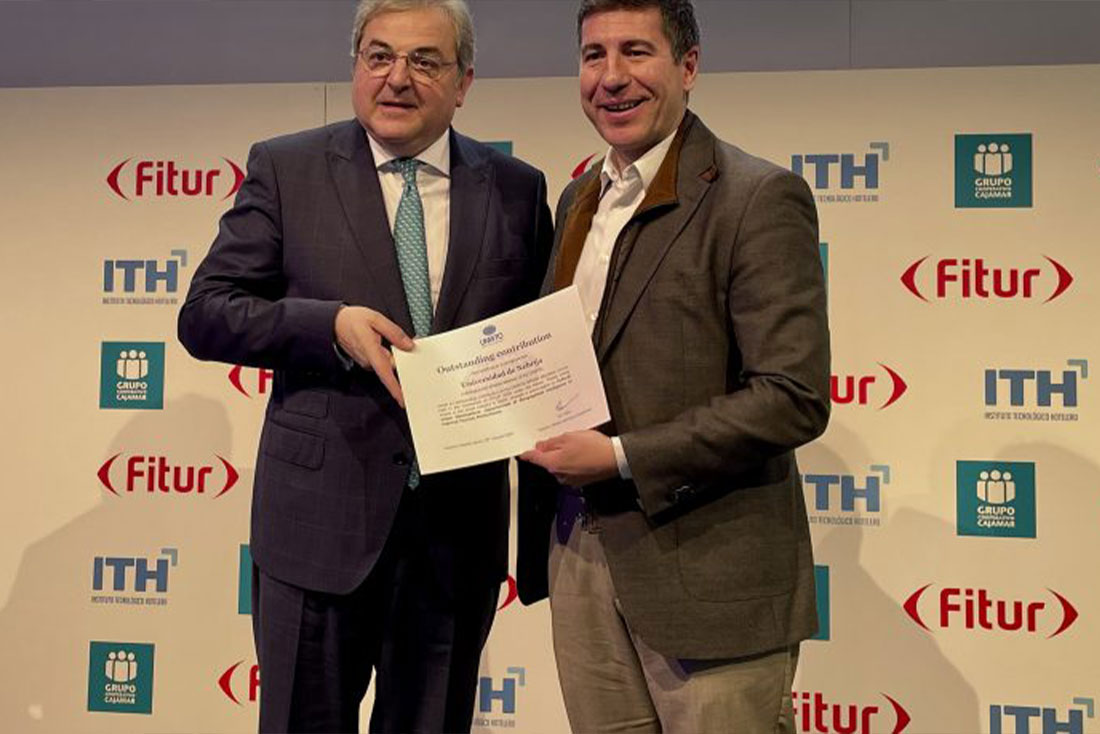
UNWTO distinguishes Nebrija University for a presentation on geospatial intelligence
The World Tourism Organization (UNWTO) organized a workshop at FITUR on the Trends that are taking shape in the travel sector in 2023. After a selection process of the applications presented to participate in this conference in the first international Tourism fair of the year, the selection committee chose the 10 presentations that served to illustrate, through real cases, the current situation of the Tourism sector and the trends that will lead the way.
Read +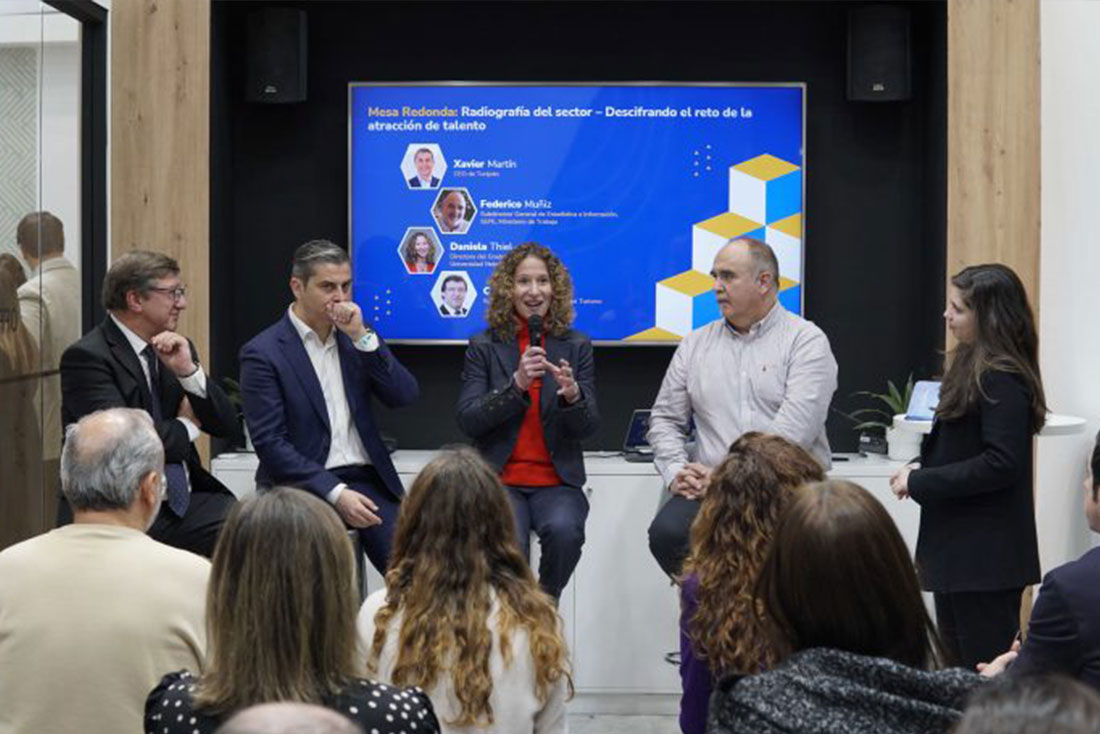
Round table at FITUR on The challenges of the tourism sector after COVID
Nebrija University participates in the International Tourism Fair (FITUR) which, after some intense days for professionals, will open its doors to the public this weekend. On Thursday, January 19, Daniela Thiel, director of the Bachelor’s Degree in Tourism and Hospitality Management, took part in a round table with Xavier Martín, CEO of Turijobs; Federico Muñiz, Deputy Director of Statistics and Information of SEPE, and Carlos Abella, General Secretary of the Tourism Board. Under the title Deciphering the challenge of attracting and retaining talent in the tourism sector in Spain, each of the speakers revealed what, according to their criteria, is the current situation of the tourism sector.
Read +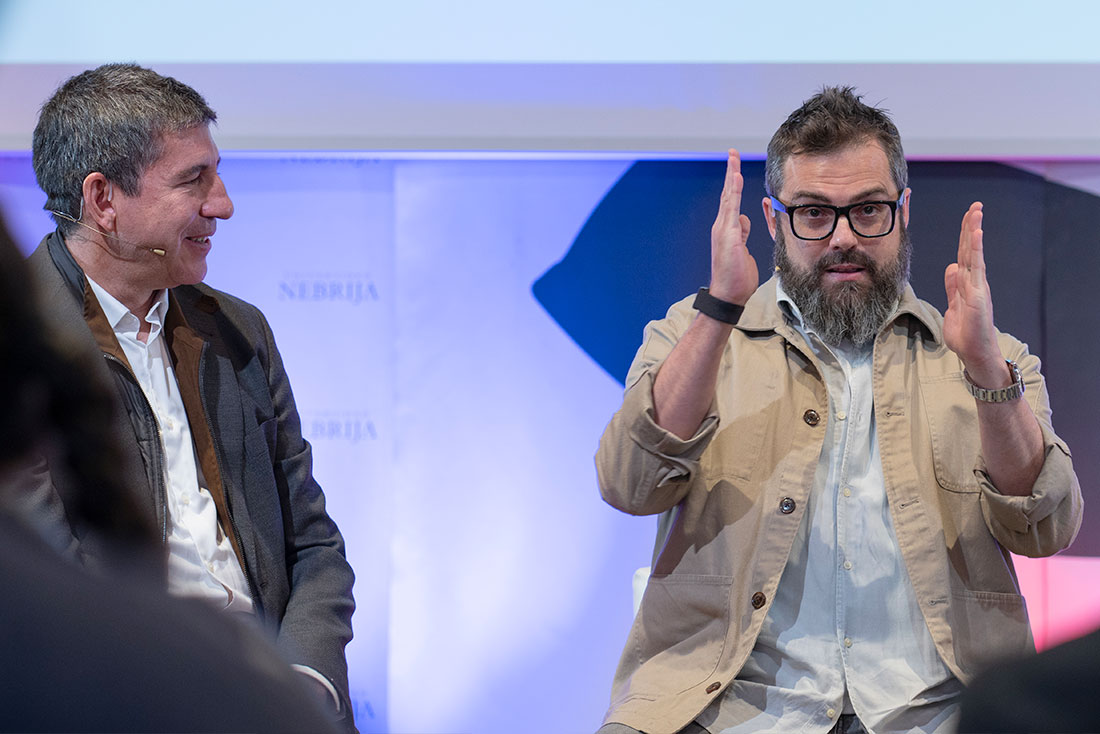
The tourism sector harnesses extended reality in its interactions with clients
Miguel Flecha, CEO and founder of Delaight; Santiago Sagrado, Director of Strategy at The Cliff; and David Ghossein, Director of Sales & Marketing at Madrid Marriott Auditorium Hotel & Conference Center, concur that extended reality (including virtual, augmented, and mixed reality) broadens the horizons of tourism, paving the way for a future trend estimated to generate 17,000 million dollars worldwide, with approximately 180 million users.
Read +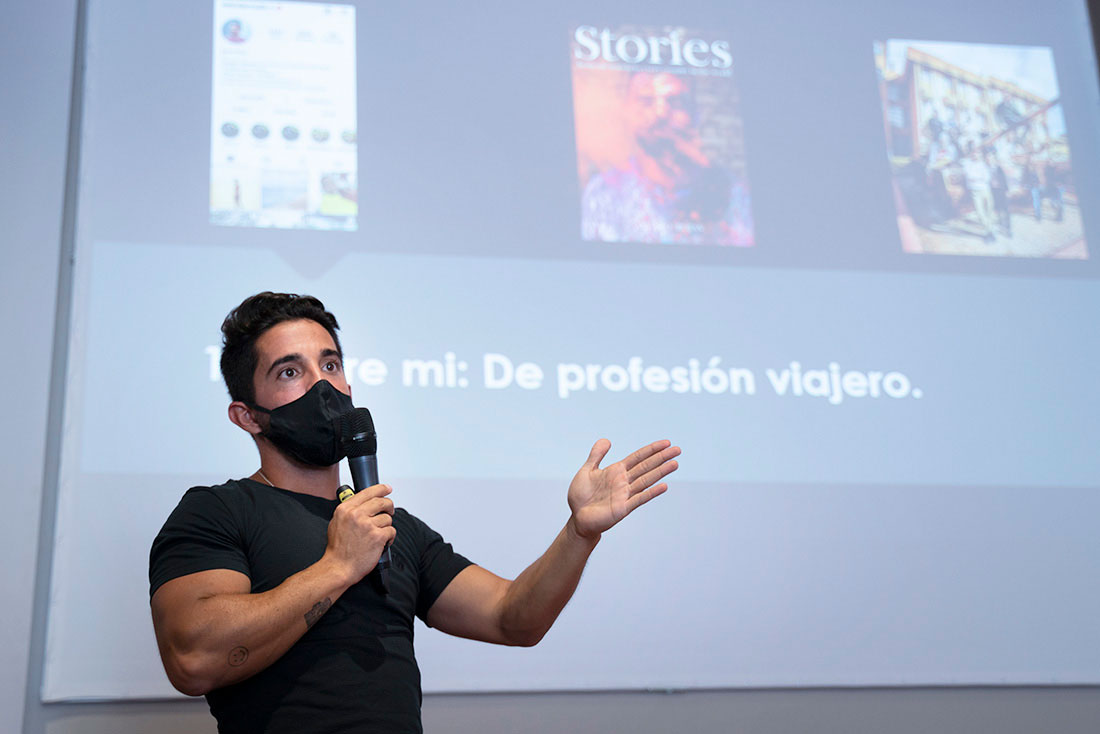
Click on the image to see +
Álvaro Rojas (@wanderreds): "Vaccination is going to be key in order to revive tourism"
With the aim of explaining the current situation of the tourism sector, the youngest Spanish professional traveler, blogger, photographer to travel to all parts of the world, Álvaro Rojas (@wanderreds on Instagram), held an enriching presentation organized by the Department of Tourism of Nebrija University.
The benefit of technology for Tourism
Interview with Natalia Bayona, Director of Innovation, Education and Investments at the World Tourism Organization (UNWTO), where she analyzes the importance of applying technological solutions in Tourism to help reach more people, improve customer experience and continue to be the largest employer of youth and women in the world. She also highlights the role of education in empowering young people so that they are agents of change towards a more sustainable, more modern and more innovative system.
Our students give us their opinion about the Bachelor’s Degree in Tourism and Hospitality Management
Helena Lambers and Ana Salas, two of our students, give their opinion on the Bachelor’s Degree in Tourism and Hospitality Management, the current situation of the sector, what the teaching and experience in Nebrija has been like, and their professional expectations.
Feast Day of Saint Thomas Aquinas 2023
On Friday, January 27, the feast day of Saint Thomas Aquinas was celebrated with an event that took place in the Graduate Hall of the Madrid-Princesa Campus. Rolf Tarrach, trustee of Nebrija University, was in charge of teaching the master class entitled Confidence in Knowledge.
IMPULSA I. Nebrija Employment Event
Event in which Nebrija talent connects with companies, organized by Nebrija Alumni and the Professional Careers department.
Opening ceremony of the academic year 2022-2023
Opening Ceremony of the academic year at the Madrid-Princesa Campus of Nebrija University.
Week of the School of Social Sciences
Once again, Nebrija University organizes the Week of the School of Social Sciences, in which we can enjoy various presentations and activities related to the business world, law and tourism, among others.

